 Important Documents For Admission (2025 - 2026)
Important Documents For Admission (2025 - 2026)
| Degree Awarded | Discipline | Duration | Entry Level | Seats in IIST |
| B.Tech | CSE | 4 years | 10+2 | 180 |
| M.Tech | CSE | 2 years | B.E. or B.Tech | 18 |
The Department of Computer Science & Engineering was established in the year 2003 with B.E. (CSE) with an intake of 60 students. Presently the intake is 180. It is amongst very few CSE Departments in Engineering Colleges of Central India that has been accredited twice by the National Board of Accreditation (NBA) in 2013 & 2016. The CSE department offers PG program in M.E. (CSE) since the year 2009-10 with an intake of 18 students. There has been consistent development in all the spheres including infrastructure, staff and student strength. Well-equipped laboratories with high-end computers, high-speed internet (Broadband and Wi-Fi) facility and well-qualified staff members ensure excellent standards of education delivered by the department. Computer Science & Engineering is a dynamic and exciting area that provides excellent career opportunities in various sectors of the society. We are committed to give our students an environment where they develop their critical thinking and problem-solving skills as they advance through the program.
| Subject Code | Subject Name | CO | CO Description |
| BT-101 | Engineering Chemistry | 1.1.1.1 | Differentiate hard and soft water; solve the related numerical problems on water purification and its significance in industry and daily life. |
| 1.1.1.2 | Select the lubricant for various purposes based on the type of Machines. |
||
| 1.1.1.3 | Equipped with basic knowledge of polymer , methods of polymerization and various industrial applications of polymers |
||
| 1.1.1.4 | Draw the Phase diagrams of one & two component systems and causes, consequences and methods to minimize corrosion to improve industrial designs. | ||
| 1.1.1.5 | Identify the structure of unknown/new compounds with the help of spectroscopy and understand periodic properties such as ionization potential, oxidation states and electro negativity | ||
| BT-102 | Mathematics-I | 1.1.2.1 | To introduce the fallouts of Rolle’s Theorem that is fundamental to application of analysis to Engineering problems. |
| 1.1.2.2 | To introduce the idea of applying differential and integral calculus to notions of curvature and to improper integrals. Apart from some applications it gives a basic introduction on Beta and Gamma function | ||
| 1.1.2.3 | To develop the tool of power series and Fourier series for learning advanced Engineering Mathematics. | ||
| 1.1.2.4 | To familiarize the student with functions of several variables that is essential in most branches of engineering | ||
| 1.1.2.5 | To develop the essential tool of matrices and linear algebra in a comprehensive manner. | ||
| BT-103 | English for Communication | 1.1.3.1 | Effective use of verbal and non-verbal communication for enhanced soft skill beside enhanced reading comprehension as well |
| 1.1.3.2 | Write the different kinds of letters, reports and technical writing. | ||
| 1.1.3.3 | Apply basic rules of grammar in both written as well as oral communication. | ||
| BT-104 | Basic Electrical & Electronics Engineering | 1.1.4.1 | To introduce the concept of Basics of DC electrical Network including network theorems. |
| 1.1.4.2 | To introduce the concept of Basics of AC electrical Network(single phase & 3 phase).. | ||
| 1.1.4.3 | To study of law of Electromagnetism, introduction of transformer. | ||
| 1.1.4.4 | To study of various electrical Machines. | ||
| 1.1.4.5 | To study Basic Concept Digital Electronics. | ||
| BT-105 | Engineering Graphics | 1.1.5.1 | Draw various types of scales, and curves. |
| 1.1.5.2 | Draw orthographic projections of points & lines | ||
| 1.1.5.3 | Draw orthographic projections of Planes & Solids | ||
| 1.1.5.4 | Draw sections and development of solids including cylinders, cones, prisms and pyramids. | ||
| 1.1.5.5 | Draw isometric views of Planes and Solids, Drawing using AUTOCAD. | ||
| BT-106 | Manufacturing Practices | 1.1.6.1 | Use hand and power tools for different manufacturing processes |
| 1.1.6.2 | Operate machine tools while preparing any component | ||
| 1.1.6.3 | Select the appropriate tools required for specific operation. | ||
| 1.1.6.4 | Comprehend the safety measures required to be taken while using the tools. | ||
| 1.1.6.5 | Prepare Foundry, Fitting, Carpentry, Welding and smithy Job. | ||
| BT-107 | Internship-I (60 Hrs Duration) at the Institute level | 1.1.7.1 | Demonstrate the application of knowledge and skill sets acquired from the course and workplace in the assigned job function/s |
| 1.1.7.2 | Solve real life challenges in the workplace by analysing work environment and conditions, and selecting appropriate skill sets acquired from the course | ||
| 1.1.7.3 | Exhibit critical thinking and problem solving skills by analysing underlying issue/s to challenges | ||
| 1.1.7.4 | Demonstrate appreciation and respect for diverse groups of professionals by engaging harmoniously with different company stakeholders | ||
| 1.1.7.5 | Exhibit professional ethics by displaying positive disposition during internship | ||
| BT-108 | Swachh Bharat Summer Internship Unnat Bharat Abhiyan (100Hrs)/ Rural Outreach | 1.1.8.1 | This course is to sensitize students about the socio-cultural aspects of the rural areas parochial to their colleges. |
| 1.1.8.2 | Students are expected to observe, investigate and learn about the following aspects of the rural region: i. Demographics, Literacy, Geographical parameters of the Village; ii. Schemes of government of India and State of Madhya Pradesh in operation in the villages. | ||
| 1.1.8.3 | To enhance critical thinking by making them participate in social activities and imbibe human values among them. | ||
| 1.1.8.4 | Rural Swachh Bharat Abhiyan is to promote cleanliness and develop healthy habits in people in villages. | ||
| 1.1.8.5 | Unnat Bharat Abhiyan: To build an understanding of the development agenda within institutes of Higher Education and an institutional capacity and training relevant to national needs, especially those of rural India. | ||
| BT-201 | Engineering Physics | 1.2.1.1 | The Coursework is designed to provide students the opportunity to learn key concepts of Wave nature of particles and the Schrodinger equation. |
| 1.2.1.2 | Student will able to understand the knowledge of Wave optics i.e. interference and diffraction. | ||
| 1.2.1.3 | To introduce the idea of solids like semiconductors (P type and N Type semiconductors), Diodes and Hall effect. STudents will also be able to understand the basic concept of superconductivity. | ||
| 1.2.1.4 | To develop the understanding of Lasers, fiber optics and their applications in field of engineering sciences. | ||
| 1.2.1.5 | To provide you to basic understanding of Electrostatics in vacuum. | ||
| BT-202 | Mathematics-II | 1.2.2.1 | To introduce effective mathematical tools for the solutions of ordinary and partial differential equations that model physical processes. |
| 1.2.2.2 | To introduce the tools of differentiation and integration of functions of complex variable those are used in various techniques dealing engineering problems. | ||
| 1.2.2.3 | To acquaint the student with mathematical tools available in vector calculus needed various field of science and engineering. | ||
| BT-203 | Basic Mechanical Engineering | 1.2.3.1 | Understand the properties of material, stress strain. Properties of alloys and cast iron. |
| 1.2.3.2 | Understand the concept measurement and machine tools their operations and their applications. | ||
| 1.2.3.3 | Understand the concept of fluid flow , properties of fluid, Bernoulli’s equation, Pascal’s law. | ||
| 1.2.3.4 | To Understand the concept of heat and temperature, law of thermodynamics, boilers and their mountings and accessories, basic Refrigeration cycles and its applications. | ||
| 1.2.3.5 | To Understand the working of different cycles and 4 strokes, 2 stroke engines and their applications. | ||
| BT-204 | Basic Civil Engineering & Mechanics | 1.2.4.1 | Students will acquire the basic knowledge in different fields of civil engineering and materials used in construction. |
| 1.2.4.2 | Gain the ability to use modern survey equipment to measure angles and distances. | ||
| 1.2.4.3 | Students will understand the basic of contour lines and map | ||
| 1.2.4.4 | Students will have the ability to identify, formulate and solve engineering problems related to Engineering Mechanics: Statics | ||
| 1.2.4.5 | Students will be able to analyse beam for shear force and bending moment. | ||
| BT-205 | Basic Computer Engineering | 1.2.5.1 | Able to understand the basic applications of computers in various fields, describe operating system, its role and functionalities and to apply concepts of MS word, MS power point, MS Excelefficiently. |
| 1.2.5.2 | Discuss and apply simple algorithms for arithmetic and logical problems. | ||
| 1.2.4.3 | Translate the algorithms to programs applyingobject-oriented concepts in C++ programming language. | ||
| 1.2.4.4 | Understand basics of computer networks, OSI layers and protocols, E commerce applications, impact of securitythreats and attacks on networking systems and also security measures | ||
| 1.2.4.5 | Understand the different method for representing and processing data and to get awareness about the impact of cloud computing, its various type of services. | ||
| BT-206 | Language Lab & Seminars | 1.2.6.1 | learners to develop good listening skills. |
| 1.2.6.2 | Encourages learner to talk freely and lose their shyness when talking in front of the people | ||
| 1.2.6.3 | To develop the overall personality of the students by the practical activities | ||
| 1.2.6.4 | Helps in confidence building, motivation to be more presentable and help in removing the stage fright | ||
| 1.2.6.5 | Develops speaking, writing, reading, listening and presentation skills. | ||
| ES-301 | Energy & Environmental Engineering | 2.3.1.1 | Get the knowledge of energy carriers, energy technologies, renewable energy resources, energy challenges and energy system integration and environment sustainability. |
| 2.3.1.2 | Learn about the different types of ecosystems present in environment, ecological succession and energy flow in the ecosystem. | ||
| 2.3.1.3 | Understand the value of bio-diversity to human societies, threats to bio-diversity, In-situ and Ex-situ conservation of bio-diversity. | ||
| 2.3.1.4 | Acquire knowledge of different types of environmental pollution, its effects on life and its remedies. | ||
| 2.3.1.5 | Aware about the social issue related to the environment, environment ethics, protection and conservation acts for the environment. | ||
| CS-302 | Discrete Structure | 2.3.2.1 | Students will be able to understand the notion of mathematical thinking and algorithmic thinking and be able to apply them in problem solving such as formula specifications, verifications and basic concepts of set theory. |
| 2.3.2.2 | Understand the basic principle of boolean algebra, logic and set theory. | ||
| 2.3.2.3 | Be able to construct simple mathematical proof and possess the ability to verify them. | ||
| 2.3.2.4 | Acquire ability to describe computing problems with the help of graph theory and finite state machines, also express its utility in solving and modeling real time problems. | ||
| 2.3.2.5 | Apply basic counting techniques to solve combinatorial problem. | ||
| CS-303 | Data Structure | 2.3.3.1 | To understand the concept of linear, non-linear data structures, the operations performed on them and the applications of various data structures. |
| 2.3.3.2 | Understand the arrays, searching and sorting algorithms. | ||
| 2.3.3.3 | Implement stacks, queues and its applications. | ||
| 2.3.3.4 | Implement linked list and its variations. | ||
| 2.3.3.5 | Solve problem involving graphs, trees and heaps. | ||
| CS-304 | Digital Systems | 2.3.4.1 | Understand the concept of number systems & binary arithmetic. |
| 2.3.4.2 | To study the boolean algebra and minimization of switching function. | ||
| 2.3.4.3 | Understand logic gates, universal gate, adders & subtractors. | ||
| 2.3.4.4 | Demonstrate linear wave shaping circuits, logic families, multiplexers and memory. | ||
| 2.3.4.5 | Understand basic digital communication system. | ||
| CS-305 | Object Oriented Programming & Methodology |
2.3.5.1 | Describe the procedural and object oriented paradigm with concepts of streams, classes, functions, data and objects. |
| 2.3.5.2 | Understand dynamic memory management techniques using pointers, constructors, destructors etc. | ||
| 2.3.5.3 | Describe the concept of function overloading, operator overloading, virtual functions and polymorphism. | ||
| 2.3.5.4 | Understand how to apply the major object-oriented concepts to implement object oriented programs in C++, encapsulation, inheritance and polymorphism. | ||
| 2.3.5.5 | Classify inheritance with the understanding of early and late binding, usage of exception handling, generic programming. | ||
| CS-306 | Computer Workshop | 2.3.6.1 | Understand the concepts of Java programming. |
| 2.3.6.2 | Understand fundamentals of programming such as variables, conditional and iterative execution, methods, etc. | ||
| 2.3.6.3 | Understand fundamentals of object-oriented programming in Java and be familiar of the important concepts like class, inheritance and multithreading, AWT and JDBC. | ||
| 2.3.6.4 | Use the Java SDK environment to create, debug and run Java programs. | ||
| 2.3.6.5 | Develop Java applet. | ||
| BT-107 | Evaluation of Internship-I completed at I year level |
1.1.7.1 | To display the utility of information and talent units obtained from the path and place of business withinside the assigned task function. |
| 1.1.7.2 | Solve actual existence demanding situations withinside the path via way of means of analysing the area and choosing suitable ability units obtained from the path. | ||
| 1.1.7.3 | Exhibit important questioning and hassle fixing talents via way of means of analysing underlying issues to challenges. | ||
| 1.1.7.4 | Demonstrate the capacity to harness assets with the aid of using analysing demanding situations and thinking about opportunities. | ||
| 1.1.7.5 | Articulate profession alternatives via way of means of thinking about possibilities in company, sector, industry, expert and academic advancement. | ||
| BT-307 | 90 hrs Internship based on using various softwares –Internship -II | 2.3.8.1 | Demonstrate the application of knowledge and skill sets acquired from the course and workplace in the assigned job functions. |
| 2.3.8.2 | Solve real life challenges in the workplace by analysing work environment and conditions, and selecting appropriate skill sets acquired from the course. | ||
| 2.3.8.3 | Exhibit critical thinking and problem solving skills by analysing the challenges. | ||
| 2.3.8.4 | Demonstrate appreciation and respect for diverse groups of professionals by engaging harmoniously with different company stakeholders. | ||
| 2.3.8.5 | Exhibit professional ethics by displaying positive disposition during internship. | ||
| BT-401 | Mathematics- III | 2.4.1.1 | Understand mathematical tools for the numerical solutions algebraic and transcendental equations. |
| 2.4.1.2 | Describe mathematical knowledge to understand laplace transformation, inverse laplace transformation and fourier transform which are used in various branches of engineering. | ||
| 2.4.1.3 | Work with mathematical tools available in statistics needed in various field of science and engineering. | ||
| 2.4.1.4 | Fulfill the needs of engineers to understand applications of numerical analysis, transform calculus and statistical techniques in order to acquire mathematical knowledge. | ||
| 2.4.1.5 | Solve wide range of practical problems appearing in different sections of science and engineering. | ||
| CS-402 | Analysis Design of Algorithm | 2.4.2.1 | Implement sorting and searching algorithms. |
| 2.4.2.2 | Experiment with techniques for obtaining maximum outputs with minimum efforts. | ||
| 2.4.2.3 | Make use of dynamic program. | ||
| 2.4.2.4 | Solve 8 queens problem and others of the kind for application in real world scenario. | ||
| 2.4.2.5 | Distinguish between NP-hard and NP-complete problems and develop their solutions. | ||
| CS-403 | Software Engineering | 2.4.3.1 | Define various software application domains and remember different process models used in software development. |
| 2.4.3.2 | Understand various measures of software and generate project schedule. | ||
| 2.4.3.3 | Describe functional and nonfunctional requirements of software and develop design modules of software. | ||
| 2.4.3.4 | Investigate the reasons for bugs and apply the software testing techniques in commercial environment. | ||
| 2.4.3.5 | Understand various activities to be performed for improving software quality and software maintenance. | ||
| CS-404 | Computer Org. & Architecture | 2.4.4.1 | Define the structure, function and characteristics of computer systems. |
| 2.4.4.2 | Design of the various functional units and components of computers. | ||
| 2.4.4.3 | Identify the elements of input output in computers. | ||
| 2.4.4.4 | Explain the function of each element of a memory hierarchy. | ||
| 2.4.4.5 | Understand the function of multi processing and techniques to achieve it. | ||
| CS-405 | Operating Systems | 2.4.5.1 | Gain knowledge of history of operating systems and understand design issues associated with operating systems. |
| 2.4.5.2 | Understand issues related to file system interfaces and implementation, disk management. | ||
| 2.4.5.3 | Identify the process management policies and analyze and compare scheduling of processes by CPU along with memory management. | ||
| 2.4.5.4 | Understand concepts of memory management (including virtual memory), I/O and concurrency control. | ||
| 2.4.5.5 | Understand network distributed and multiprocessing operating system. | ||
| CS-406 | Programming Practices | 2.4.6.1 | Use an integrated development environment to write, compile, run, and test simple object-oriented Java programs. |
| 2.4.6.2 | Read and make elementary modifications to Java programs that solve real-world problems. | ||
| 2.4.6.3 | Validate input in a Java program. | ||
| 2.4.6.4 | Identify and fix defects and common security issues in code. | ||
| 2.4.6.5 | Document a Java program using Javadoc. | ||
| BT-407 | 90 hrs Internship based on using various software – Internship – II | 2.4.7.1 | Exposure to organizational skills and professional practices. |
| 2.4.7.2 | Efficiently completing tasks, fostering good relationship with seniors and subordinates | ||
| 2.4.7.3 | Improved communication & interpersonal skills. | ||
| 2.4.7.4 | Exposure to latest technology applications to the specific discipline. | ||
| 2.4.7.5 | Identification of relevant problems in the industry and innovative solutions. | ||
| CS-501 | Theory of Computation | 3.5.1.1 | Explain the basic concepts of switching and finite automata theory and languages. |
| 3.5.1.2 | Relate practical problems to languages, automata the computability and complexity. | ||
| 3.5.1.3 | Construct abstract models of computing and check their power to recognise the languages. | ||
| 3.5.1.4 | Analyse the grammar, its types, simplification and normal form. | ||
| 3.5.1.5 | Interpret rigorously formal mathematical methods to prove properties of languages, grammars and automata. | ||
| CS-502 | Database Management Systems | 3.5.2.1 | Understand the different issues involved in the design and implementation of a database system. |
| 3.5.2.2 | Study the physical and logical database designs, database modeling, relational, hierarchical, and network models. | ||
| 3.5.2.3 | Understand and use data manipulation language to query, update, and manage a database. | ||
| 3.5.2.4 | Develop an understanding of essential DBMS concepts such as: database security, integrity, concurrency. | ||
| 3.5.2.5 | Design and build a simple database system and demonstrate competence with the fundamental tasks involved with modeling, designing, and implementing a DBMS. | ||
| 3.5.2.6 | Evaluate a business situation and designing & building a database applications. | ||
| CS-503 | Pattern Recognition | 3.5.3.1 | To understand the supervised learning and unsupervised learning. |
| 3.5.3.2 | Describe the various levels of classification models. | ||
| 3.5.3.3 | Describe the various levels of clustering and it’s algorithms. | ||
| 3.5.3.4 | Understand this feature extraction and its models. | ||
| 3.5.3.5 | Construct various types of pattern recognition models. | ||
| CS-504 | Internet and Web Technology | 3.5.4.1 | Describe the concepts of WWW including browser and HTTP protocol. |
| 3.5.4.2 | List the various HTML tags and use them to develop the user friendly web pages. | ||
| 3.5.4.3 | Define the CSS with its types and use them to provide the styles to the web pages at various levels. | ||
| 3.5.4.4 | Developed the modern web pages using the HTML and CSS features with different layout as per the need of applications. | ||
| 3.5.4.5 | Use of JavaScript to develop the dynamic web pages and PHP. | ||
| CS-505 | Lab (Linux) | 3.5.5.1 | Understand Functions of operating system and its types and Unix system architecture. |
| 3.5.5.2 | Understand and make use of the basic commands of linux operating system and Work confidently in Linux environment. | ||
| 3.5.5.3 | Understand file systems and illustrate various file operations. | ||
| 3.5.5.4 | Create shell scripts to automate different tasks as Linux. | ||
| 3.5.5.5 | Understand installation of web servers and proxy servers. | ||
| CS-506 | Lab (Python) | 3.5.6.1 | Understand the basic concepts scripting and the contributions of scripting language. |
| 3.5.6.2 | Examine the core data structures like lists, dictionaries, tuples and sets in Python to store, process and sort the data. | ||
| 3.5.6.3 | Identify the external modules and import specific methods form them. | ||
| 3.5.6.4 | Demonstrate proficiency in handling Strings and file systems. | ||
| 3.5.6.5 | Explore python especially the object oriented concepts, and the built in objects of Python. | ||
| CS-507 | Evaluation of Internship-II | 3.5.7.1 | To display the utility of information and talent units obtained from the path and place of business withinside the assigned task functions. |
| 3.5.7.2 | Solve actual existence demanding situations withinside the path via way of means of analysing the area and choosing suitable ability units obtained from the path. | ||
| 3.5.7.3 | Exhibit important questioning and hassle fixing talents via way of means of analysing underlying issue/s to challenges. | ||
| 3.5.7.4 | Demonstrate the capacity to harness assets with the aid of using analysing demanding situations and thinking about opportunities. | ||
| 3.5.7.5 | Articulate profession alternatives via way of means of thinking about possibilities in company, sector, industry, expert and academic advancement. | ||
| CS-508 | Minor Project- I | 3.5.8.1 | A fully engaged student shall be able to get exposure to undertake a short research project. |
| 3.5.8.2 | To enable the students to develop comprehensive solution of identified problems. | ||
| 3.5.8.3 | To inculcate the ability to synthesize the results of the detailed analytical studies conducted, lay down validity and design criteria, interpret the result for application to the problem, develop the concept and detailed design solution. | ||
| CS-601 | Machine Learning | 3.6.1.1 | Apply knowledge of computer and mathematics to machine learning problems, models and algorithms. |
| 3.6.1.2 | Analyse the problem and identify the computing requirements appropriate for its solutions. | ||
| 3.6.1.3 | Design, implement, and evaluate an algorithm to meet desired needs. | ||
| 3.6.1.4 | Apply mathematical foundations, algorithmic principles, and computer science theory to the modelling and design of computer based systems in a way that demonstrates comprehension of the trade-offs involved in design choices. | ||
| 3.6.1.5 | Analyze the co-occurrence of data to find interesting frequent patterns and Preprocess the data before applying to any real-world problem and can evaluate its performance. | ||
| CS-602 | Computer Networks | 3.6.2.1 | Characterise and appreciate computer networks from the viewpoint of components and from the viewpoint of services. |
| 3.6.2.2 | Display good understanding of the flow of a protocol in general and a network protocol in particular. | ||
| 3.6.2.3 | Model a problem or situation in terms of layering consent and map it to the TCP/IP stack. | ||
| 3.6.2.4 | Select the most suitable application layer protocol such as (HTTP, STTP, SMTP, DNS bit torrent) and as per the requirements of the network application and work with available tools to demonstrate the working of these protocols. | ||
| 3.6.2.5 | Design a reliable data transfer protocol and incrementally and develop solutions for the requirements of transport layer. | ||
| CS-603 | Compiler Design | 3.6.3.1 | Demonstrate an understanding of the compilation phases. |
| 3.6.3.2 | Specify and analyze the lexical, syntactic and semantic structures of advanced language features. | ||
| 3.6.3.3 | Write a scanner, parser, and semantic analyser without the aid of automatic generators. | ||
| 3.6.3.4 | Describe techniques for intermediate code and machine code optimization. | ||
| 3.6.3.5 | Design the structures and support required for compiling advanced language features | ||
| CS-604 | Project Management | 3.6.4.1 | Understanding the evolution and improvement of software economics according to the basic parameters and transition to the modern software management. |
| 3.6.4.2 | Learning objectives, activities and evaluation criteria of the various phases of the life-cycle of software management process. | ||
| 3.6.4.3 | Gaining knowledge about the various artefacts, workflows and check points of the software management process and exploring the design concepts using model-based architecture from technical and management perspective. | ||
| 3.6.4.4 | Develop an understanding of project planning, organisation, responsibilities, automation and control of the processes to achieve the desirable results. | ||
| 3.6.4.5 | Develop a project scope while considering factors such as customer requirements and internal/external goals. | ||
| CS-605 | Data Analytics Lab | 3.6.5.1 | Understand the basic of data analytics using concepts of statistics and probability. |
| 3.6.5.2 | Understand the needs of data processing techniques. | ||
| 3.6.5.3 | Implement the data analytics techniques using R, Matlab and python. | ||
| 3.6.5.4 | Apply the data analytics techniques in real life applications. | ||
| 3.6.5.5 | Articulate the limitations and abuses of formal inference and modeling. | ||
| CS-606 | Skill Development Lab | 3.6.6.1 | Demonstrate the basics of software as a product. |
| 3.6.6.2 | Understand the current requirements of industries. | ||
| 3.6.6.3 | Implement the software as a product using different design patterns. | ||
| 3.6.6.4 | Apply the software development techniques in real life applications. | ||
| CS-607 | Internship-III | 3.6.7.1 | To display the utility of information and talent units obtained from the path and place of business withinside the assigned task functions. |
| 3.6.7.2 | Solve actual existence demanding situations withinside the path via way of means of analysing the area and choosing suitable ability units obtained from the path. | ||
| 3.6.7.3 | Exhibit important questioning and hassle fixing talents via way of means of analysing underlying issue/s to challenges. | ||
| 3.6.7.4 | Demonstrate the capacity to harness assets with the aid of using analysing demanding situations and thinking about opportunities. | ||
| 3.6.7.5 | Articulate profession alternatives via way of means of thinking about possibilities in company, sector, industry, expert and academic advancement. | ||
| CS-608 | Minor Project II | 3.6.8.1 | A fully engaged student shall be able to get exposure to undertake a short research project. |
| 3.6.8.2 | To enable the students to develop comprehensive solution of identified problems. | ||
| 3.6.8.3 | To inculcate the ability to synthesize the results of the detailed analytical studies conducted, lay down validity and design criteria, interpret the result for application to the problem, develop the concept and detailed design solution. | ||
| CS-701 | Software Architectures | 4.7.1.1 | Describe the fundamentals of software architecture, qualities and terminologies. |
| 4.7.1.2 | Understand the fundamental principles and guidelines for software architecture design,architectural styles, patterns, and frameworks. | ||
| 4.7.1.3 | Use implementation techniques of Software architecture for effective software development. | ||
| 4.7.1.4 | Apply core values and principles of software architectures for enterprise application development. | ||
| 4.7.1.5 | Describe software architecture documentation. | ||
| CS-702 | Wireless & Mobile Computing | 4.7.2.1 | Design and create traditional networks. |
| 4.7.2.2 | Understand the different issues in MAC and routing issues in multi hop wireless and ad-hoc networks and existing solutions for the same. | ||
| 4.7.2.3 | Evaluate the transport layer issues in wireless networks due to errors and mobility of nodes and understand existing solutions for the same. | ||
| 4.7.2.4 | Explain the architecture of GSM. | ||
| 4.7.2.5 | Discuss the services, emerging issues and future trends in m-commerce. | ||
| CS-703 | Agile Software Development | 4.7.3.1 | Describe the fundamental principles and practices associated with each of the agile development methods. |
| 4.7.3.2 | Compare agile software development model with traditional development models and identify the benefits and pitfalls. | ||
| 4.7.3.3 | Use techniques and skills to establish and mentor Agile Teams for effective software development. | ||
| 4.7.3.4 | Apply core values and principles of Agile Methods in software development. | ||
| 4.7.3.5 | Judge and craft appropriate adaptations to existing practices or processes depending upon analysis of typical problems. | ||
| CS-704 | Departmental Elective Lab CS-702 [Wireless & Mobile Computing] |
4.7.4.1 | Demonstrate wireless network with number of nodes and different parameters using simulator. |
| 4.7.4.2 | Understand the basic concept of inter-networking devices. | ||
| 4.7.4.3 | Describe the basic concept of IP addressing. | ||
| 4.7.4.4 | Execute the basic network command and Network configuration commands. | ||
| 4.7.4.5 | Configure network using routing protocol. | ||
| CS-705 | Open Elective Lab CS-703 [Agile Software Development] |
4.7.5.1 | Understand agile development processes and the principles behind the Agile manifesto. |
| 4.7.5.2 | Develop a product vision, customer journey, and roadmap. | ||
| 4.7.5.3 | Build out a backlog and user stories. | ||
| 4.7.5.4 | Leverage Scrum practices in small teams as you build out a working prototype for your class project. | ||
| 4.7.5.5 | Explore advanced and emerging topics in the domain of software development. | ||
| CS-706 | Major Project-I | 4.7.6.1 | Demonstrate a sound technical knowledge of their selected project topic. |
| 4.7.6.2 | Undertake problem identification, formulation and solution. | ||
| 4.7.6.3 | Design engineering solutions to complex problems utilising a systems approach. | ||
| 4.7.6.4 | Communicate with engineers and the community at large in written and oral forms. | ||
| 4.7.6.5 | Demonstrate the knowledge, skills and attitudes of a professional engineer. | ||
| CS-607 | Evaluation of Internship -III | 4.6.7.1 | Demonstrate awareness of the ethics involved in doing an internship. |
| 4.6.7.2 | Describe, analyze, and synthesize their learning experience in the internship in the form of an internship paper. | ||
| 4.6.7.3 | Articulate new learning from the internship experience in the form of an oral presentation. | ||
| 4.6.7.4 | Show understanding and assess the challenges carrying out an internship in a cross cultural setting with limited language skills and in a short timeframe; | ||
| 4.6.7.5 | Gain meaningful and practical experience in their chosen field. | ||
| CS-801 | Internet of Things | 4.8.1.1 | Understand Internet of Things and its hardware and software components. |
| 4.8.1.2 | Interface I/O devices, sensors & communication modules. | ||
| 4.8.1.3 | Analyze data from various sources in real-time and take necessary actions in an intelligent fashion. | ||
| 4.8.1.4 | Remotely monitor data and control devices. | ||
| 4.8.1.5 | Develop real life IoT based projects. | ||
| CS-802 | Object Oriented Software Engineering | 4.8.2.1 | Apply object oriented principles in software design process. |
| 4.8.2.2 | Understand the phases involved in SDLC. | ||
| 4.8.2.3 | Describe the use case and activity diagrams. | ||
| 4.8.2.4 | Draw class, object and interaction diagrams. | ||
| 4.8.2.5 | Understand testing strategies and test cases for OO software process. | ||
| CS-803 | Managing Innovation and Entrepreneurship | 4.8.3.1 | Students will be able to get knowledge to real-life organisational issues faced by those establishing and managing innovation-driven organisations. |
| 4.8.3.2 | Students will be able to know about the key concepts underpinning entrepreneurship and its application in the recognition and exploitation of product service process opportunities. | ||
| 4.8.3.3 | Key concepts underpinning innovation and the issues associated with developing and sustaining innovation within organisations. | ||
| 4.8.3.4 | How to design creative strategies for pursuing, exploiting and further developing new opportunities. | ||
| 4.8.3.5 | Issues associated with securing and managing financial resources in new and established organisations. | ||
| CS-804 | Cloud computing | 4.8.4.1 | Configure various virtualization tools such as virtual box, VMware workstation. |
| 4.8.4.2 | Design and deploy a web application in a PaaS environment. | ||
| 4.8.4.3 | Learn how to simulate a cloud environment to implement new schedulers. | ||
| 4.8.4.4 | Install and use a generic cloud environment that can be used as a private cloud. | ||
| 4.8.4.5 | Manipulate large data sets in a parallel environment. | ||
| CS-805 | Major Project-II | 4.8.5.1 | Learn about different software development process models and software engineering principles and develop an ability to apply them to software design of real life problems. |
| 4.8.5.2 | Plan, analyze, design and implement a software project using programming languages like Java, ASP, PHP etc. | ||
| 4.8.5.3 | Gain confidence at having conceptualized, designed and implemented a working major project with their team. | ||
| 4.8.5.4 | Understand the fundamental principles of Software Project management & will also have a good knowledge of responsibilities of project manager and how to handle these. | ||
| 4.8.5.5 | Be familiar with the different methods and techniques used for project management. |
Course Files & Lab Manuals
| Semester | SIG’s on | Description | Outcome (Certificate/ Project etc) |
| I Sem | Logic Building & Basic Programming using C language | Able to Solve Programming Problems easy to average level | Preparation for earning Certificate |
| II Sem | Programming Basics using C/C++ Language | Able to Solve Programming Problems average to hard level | Earn Certificate |
| III Sem | Data Structures ALGOLUTION: Foundation of Data Structures and Algorithms | Data Structure Concept for Placements and competitive Programming | Preparation for competitive Programming |
| Object Oriented Concept using JAVA | OOP Concept helpful for Placements and implementation of Data Structure | Earn Certificate | |
| IV Sem | Data Structures Algolution – Algorithmic Pinnacle – Navigating Complexity: | Able to Understand and Apply Data Structure Concept | Preparation for competitive Programming |
| V Sem | Algorithm Design Algolution – Evolution of Coding through Algorithms | Algorithm design & Application of DS | CODE VITA |
| JAVA FULL STACK web development + project (Including HTML, CSS, XML and SQL) | End to end web development | Project | |
| VI Sem | AWS (CCP) | Cloud certified practitioner course (Short Term SIG) | Specialization/certification |
| CISCO | Networking course from CISCO (Short Term SIG) | ||
| SQL | Database Handling (Short Term SIG) | Project | |
| Competitive Coding | Algorithm design & Application of DS | CODE VITA | |
| VII Sem | Skill up Crash Course for Placements | Brushing up all the important subjects for Placements including Apti | Placement Preparation Specific and General |
| Spring, Hibernate MEAN or MERN Stack, MOOC Course : EDX, COURSERA, NPTEL | Sharping and Specialization in at least one domain | Earn Placement | |
| VIII Sem | Skill up Crash Course for Placements | Brushing up all the important subjects for Placements including Apti | Placement Preparation Specific and General |
| MOOC Course | Sharping and Specialization in at least one domain | Earn Placement and certification |
| SIG 2022- 2023 | ||||||
| S. No. | Title | SIG / Club / Students Chapter / ETC | Type | Date | Output / Outcome | Impact / Goal |
| 1 | Logic Building & Basic Programming using C language | Programming SIG | Workshop cum Training | Beginning of II Semester | Prepration for earning Certificate | Helpful for clearing Campus Technical MCQ’s |
| 2 | Programming Basics using C/C++ Language | Programming SIG | Workshop cum Training | During II Semester | Earn Certificate | Will learn to understand Problem Statement & Solving approach will be helpful in Solving Campus Technical coding & MCQ’s o |
| 3 | Object Oriented Concept using JAVA | Programming SIG | Workshop cum Training | During III Semester | Earn Certificate | OOP Concept helpful for Placements and inplementation of Data Structure |
| 4 | Data Structures ALGOLUTION: Foundation of Data Structures and Algorithms | Algorithm SIG | Workshop cum Training | During III Semester | Prepration for competetive Programming | Data Structure Concept for Placements and Competetive Programing |
| 5 | PYTHON | Programming SIG | Workshop cum Training | During III Semester | Earn Certificate | OOP Concept helpful for Placements and inplementation of branch specific utility |
| 6 | Advance JAVA | Programming SIG | Workshop cum Training | During IV Semester | Mini Project using UI | Enhances Resume |
| 7 | Core JAVA | Programming SIG | Workshop cum Training | During IV Semester | Earn Certificate | OOP Concept helpful for Placements and inplementation of Data Structure |
| 8 | Data Structures Algolution – Algorithmic Pinnacle – Navigating Complexity: | Algorithm SIG | Workshop cum Training | During IV Semester | Prepration for competetive Programming | Data Structure Concept for Placements and Competetive Programing |
| 9 | Algorithm Design Algolution – Evolution of Coding through Algorithms | Algorithm SIG | Workshop cum Training | During V Semester | CODE VITA | Competetive Programming |
| 10 | JAVA FULL STACK with web development + project (Including HTML, CSS, XML and SQL) | Software Development SIG | Workshop | During V Semester | Project | Successful Project |
| 11 | PYTHON + Machine Learning Project | Machine learning SIG | Internship cum Training | During V Semester | Project | Successful Project |
| 12 | AWS (CCP) | Cloud SIG | Certification course | Beginning of VI Semester | CCP CERTIFICATION | Industry Demand, these skills make student industry ready |
| 13 | CISCO | Networking SIG | Certification course | Beginning of VI Semester | CCNA CERTIFICATION | |
| 14 | ML-2 | Machine learning SIG | Workshop cum Training | Beginning of VI Semester | Project | |
| 15 | SQL | Data base SIG | Training cum internship | Beginning of VI Semester | Project | Getting an overview of flow for developing any project |
| 16 | Competitive Coding | Coding SIG | Workshop cum Training | During VI Semester | CODE VITA | Competetive Programming |
| 17 | Skill up Crash Course for Placements | Placement preparation | Training | During VII / VIII Semester | Placement Prepration Specific and General | Earn Placement |
| 18 | Spring, Hibernate MEAN or MERN Stack, MOOC Course : EDX, COURSERA, NPTEL | Placement preparation | Training | During VII / VIII Semester | Placement Prepration in specific domain | Earn Placement |
| 19 | Skill up Crash Course for Placements | Placement preparation | Training | During VII / VIII Semester | Placement Prepration Specific and General | Earn Placement |
| 20 | MOOC Course | Placement preparation | Certification course | During VII / VIII Semester | Placement Prepration Specific and General | Earn Placement |
| Name of the S.I.G. | Name of the event under S.I.G. |
| Web Development | FullStack development on MERN SATCK (Training) |
| Cloud Computing | Cloud Computing AWS course (Certification Course) |
| Internet of Things (IoT) | Hands on practice with arduino and node MCU using cloud based services |
|
Logical building and core programming
|
Internship on Introduction To Logical Thinking And Smart Programming |
| Internship On Advance Java | |
| Internship On Advance Data Structure Using C | |
| Logic Building and Core Programming and DBMS | Corporate Training on Java (Core and Advanced) |
|
AI/ML/ANN
|
Machine learning and its application |
| International webinar on Introduction to Machine Learning | |
| SIG Machine Learning |
| Name of the S.I.G. | Name of the event under S.I.G. |
| Cloud Computing | Virtual Cloud Computing with AWS Certification |
| Blockchain | FDP on block chain analysis and Big Data |
| IoT | Hands on practice using Tinkercad with Arduino |
|
Logical building and core programming
|
Internship on Introduction to Logical Thinking and Smart Programming |
| Training on Logical Building and Programming, Algorithms and Data Structures using C | |
| Web Development & DBMS | Internship of web development using HTML,CSS and java script |
|
AI/ML/ANN
|
Expert Lecture on introduction on ML and Python |
| Machine Learning Algorithms and Industrial Implementation | |
| Webinar on Sentiment analysis from Machine Learning to Deep learning |
| Name of the S.I.G. | Name of the event under S.I.G. |
| Blockchain | STTP on Block Chain Technology |
|
Cloud Computing
|
Training on cloud computing |
| AWS Academy Cloud Foundations (Certification) | |
|
AI/ML/ANN
|
Internship on Machine Learning Using Python |
| Expert lecture on AI/ML Smart techniques for resource management in cloud computing | |
| Android | Android OCI |
| Logical Thinking and Smart Programming | Introduction to Logical Thinking and Smart Programming |
|
Web Development and DBMS
|
Internship on Web development using HTML,CSS and java script |
| Certification course on Introduction to programming using Java Script | |
| Expert lecture on Introduction Angular JS | |
| Networking | Certification course on Introduction to networking |
| iOS | Internship on iOS Application Development |
| Name of the S.I.G. | Name of the event under S.I.G. |
|
Logical Thinking and Smart Programming
|
Certification Course Introduction to programming using Python |
| Advance programming using C | |
| Introduction to Logical Thinking and Smart Programming | |
|
Cloud Computing
|
Certification Course AWS Cloud Practitioner Course |
| Internship on AWS Academy Cloud Foundations | |
|
Web Development & DBMS
|
Web development using HTML,CSS and Javascript |
| J-Script and J-QUERY | |
| Programming using HTML/CSS | |
|
Internet of Things (IoT)
|
Training on Internet of things |
| Training on IOT using Arduino and Node MCU | |
|
AI/ML/ANN
|
Workshop Machine Learning And Artificial Intelligence |
| Workshop Introduction to Statistical Analysis and Machine Learning | |
| Android | Workshop on Android Bootcamp |
Computer Science is an emerging field which grows and changes very frequently. Fields like Machine Learning, Artificial Intelligence, Data Science, Internet of Things, Cloud Computing, Cyber Security etc. are growing exponentially. With this exponential growth in the recent years, there has been a steadily increasing demand for bright graduates to come in and help to transform areas ranging from data infrastructure to cyber security.
Self-learning is motivated in these special interest groups of the department. Various resources related to student interest are provided in the SIG labs. This learning is mentor by faculties and senior students to provide them an opportunity to work in team.
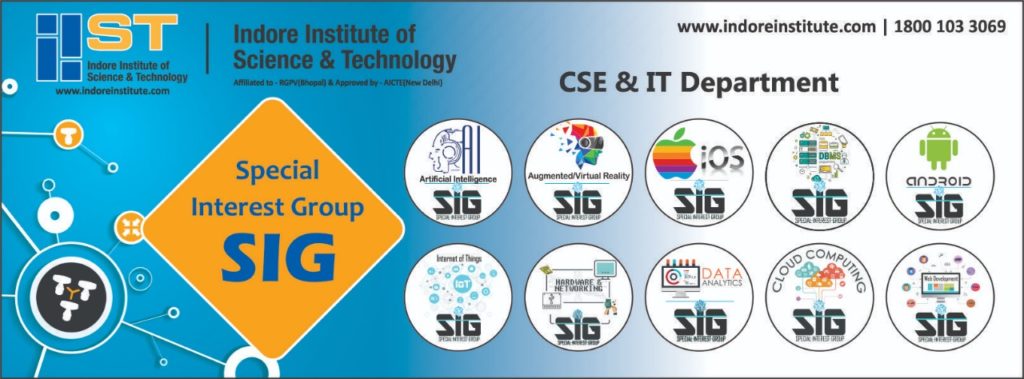
We provide certified skill courses on latest research areas and technologies through our special interest groups (SIG’s)
1. SIG- Artificial Intelligence: The overall purpose of artificial intelligence SIG is to apply different algorithms on raw data so as to allow computers and machines to function in an intelligent manner efficiently. And to evaluate and analyse the patterns of the data. Under this SIG, Students will get chance to implement these algorithm and create artificially intelligence systems.
2. SIG- Augmented and Virtual Reality: The purpose of VR/AR SIG is to understand artificial environment that is created with software for user perception and also to understand how AR works with real world image with extra layers of digital information and to gain better understanding of its wide range of applications.
3. SIG- iOS: Purpose of iOS SIG is to make students develop iOS Applications. With the amount of iPhones in the market, the need for iOS Apps also increases therefore this is the right platform for Students who want to build their career in Mobile app development as individual with their Creative ideas.
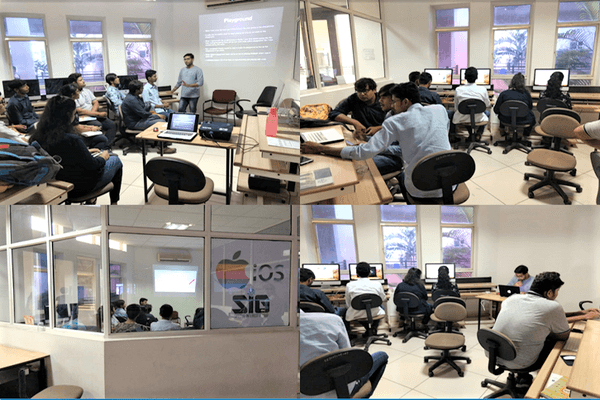
4. SIG- Database Management System: The purpose of DBMS SIG is to learn and practice software tools that organizes data that is to create, retrieve, update and manage data, in systematic way. Under this SIG trainings will be provided on software technologies like SQL, MySQL, Oracle Databases, NoSQL, MongoDB etc.
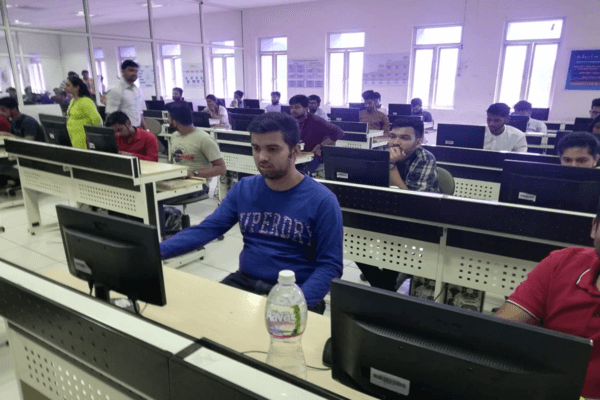
5. SIG- Android: Purpose of Android SIG is to make students understand Android App Development. In this SIG, students will learn the fundamentals of Kotlin, Google’s preferred programming language for Android and build interesting applications. Under this SIG training will be provided which will cover the Android components, tools and technologies like multi-screen Navigation, Android Studio, Intents, Fragments, Widgets, Layout and Ionic to build modern applications.
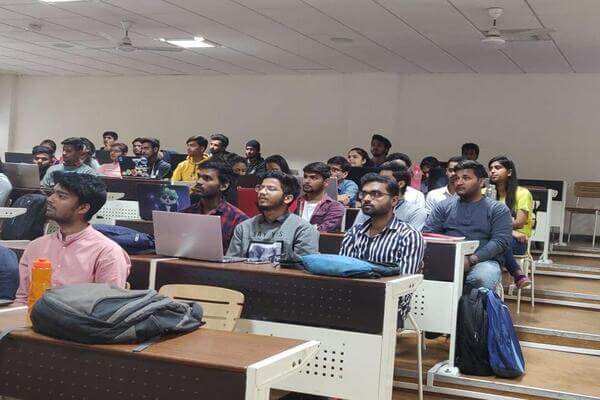
6. SIG- Internet of Things: The purpose is to train students for industry-level projects on IoT by: Organizing workshops/seminars/training/weekend activities for the students. IoT SIG facilitates with all the required equipments for practicising on different modules. These SIG Modules will help students to solve real-world problems and will encourage them to participate in various competitions across the country.
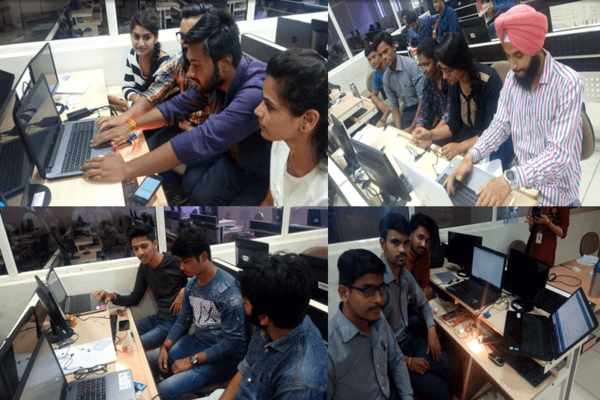
7. SIG- Hardware and Networking: Primary objective of this SIG is to build networking skill and creating a bridge to employment opportunities. Here the students are trained for international certifications like Microsoft, Cisco and Red Hat certifications. Students will learn hardware and operating systems for computer networks and train to upgrade troubleshoot and administer the system which will help them prepare for high-paying jobs. PC hardware/software installation, Networking technologies & concepts, Network administration, Cabling, Cisco router and switch configurations are the key skills focused in this SIG.
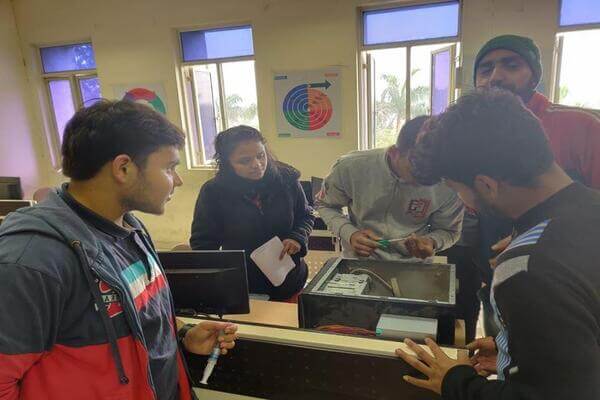
8. SIG- Data Analytics: The major purpose of Data Analytics SIG is to extract useful information from data and taking the decision based upon the data analysis or in simple words to create best out of waste. Here the students are trained to analyse different-different type of dataset and though that understand the pattern of informations that can be derived through that data. Hadoop, R and Python are some technologies which can be used to implement analytics.
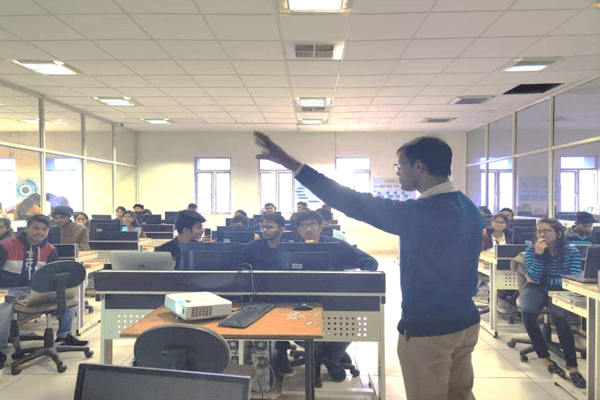
9. SIG- Cloud Computing: Cloud Computing curriculum prepare the students to pursue industry recognized certifications (AWS), and in-demand cloud jobs. In CC SIG, we train students by organizing workshops/seminars/internship. This helps learners explore cloud concepts, use cloud services, handling of security issues, and understand the architecture etc.
10. SIG- Web Development: Web development can range from developing a simple single static page of plain text to complex web-based internet applications (web apps), electronic businesses, and social network services. Web Development SIG gives an opportunity to the students to enhance their skill for web development platform.
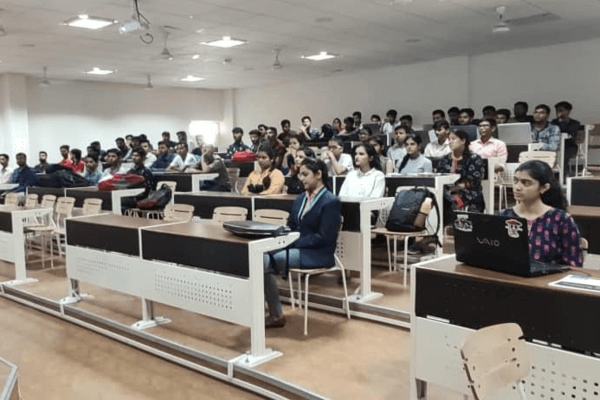
It is an initiative of Ministry of Human Resource Development (MHRD) under the National Mission on Education through ICT. The Department of CSE conducts virtual labs programs organized by different IITs across the country.
Department of CSE & IT is proud to be associated with Developer Student Clubs (DSC) with the selection of DSC lead from IIST. The DSC will conduct in-house training activities for the students to enable them to develop solutions for the local businesses.
IIST is proud to announce that we have been accepted into the AWS Academy program with Amazon Internet Services Private Limited (“AISPL”) and we are now authorized to administer and deliver the AWS Academy Cloud Computing Architecture curriculum.
Department of CSE has signed an MoU with RedHat Academy to conduct in-house training on Core System Administration, Middleware Development, Cloud Computing along with Internships in live projects & certification.
Department of CSE & IT has associated with Microsoft Imagine Academy to offer Microsoft Certified Courses in the areas of Productivity, Web Development, Data Science and Managing IT Infrastructure.
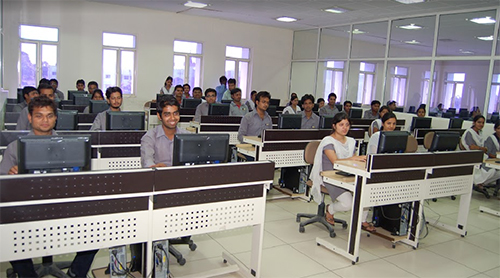
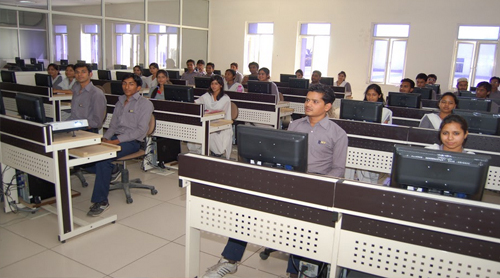
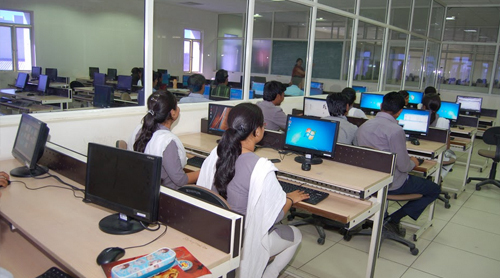
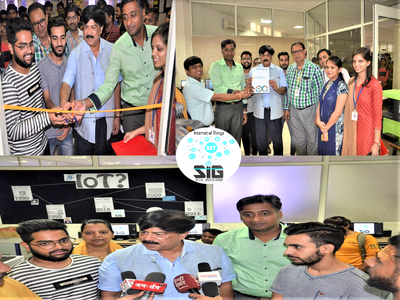
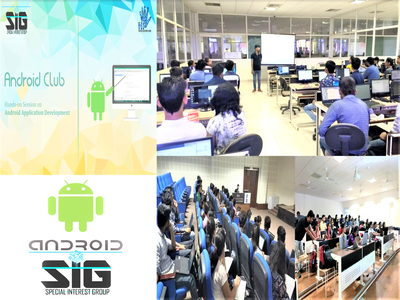
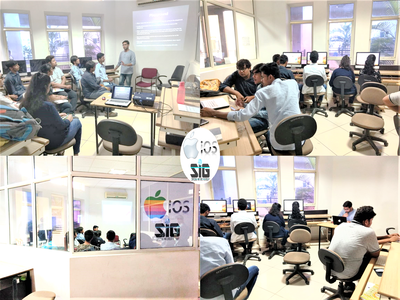
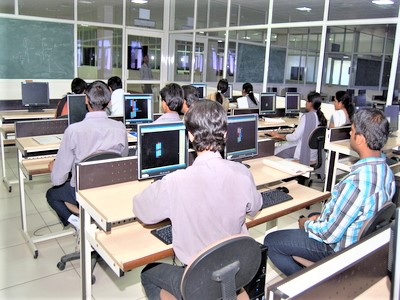
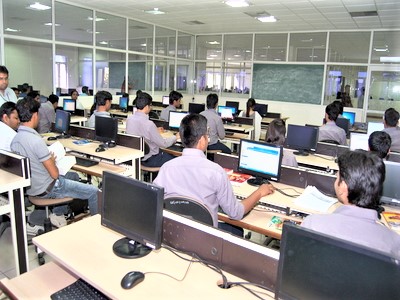
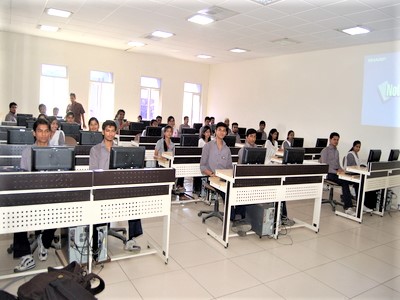
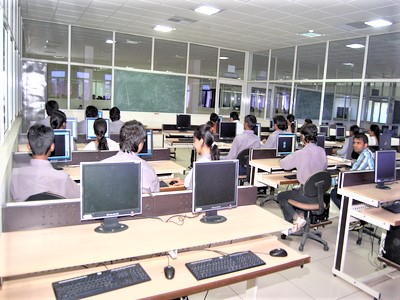
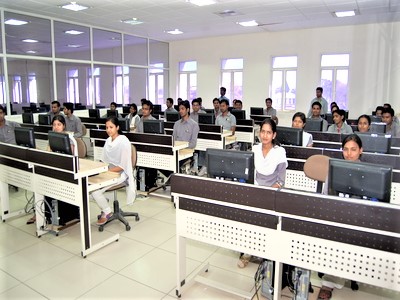
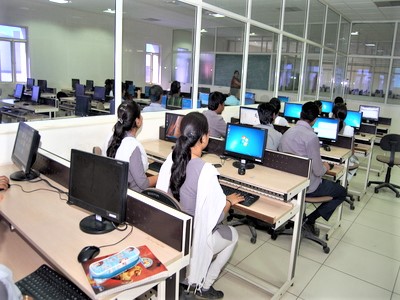
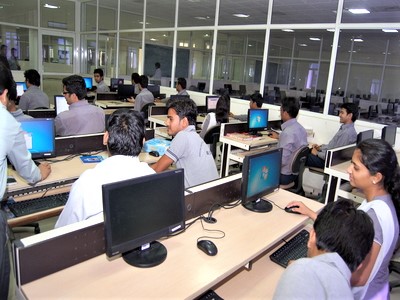
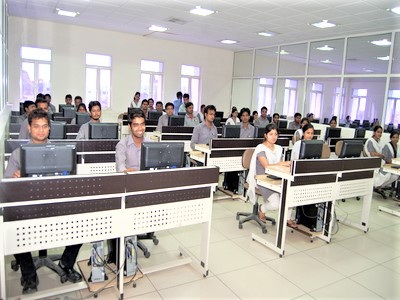
Computers are used in almost every aspect of life: automobile engines, microwave ovens, video games, watches, telephones, laptop computers, medical diagnostic equipment, commercial aircraft, and orbital satellites that deliver cable signals around the world. Computers have become tools that perform the immediate, but that’s not even quick enough. So, while the computer field is one of the fastest growing segments of industry today, it is also one of the fastest changing areas technologically.
Graduates with degrees in computer science or computer engineering might find themselves in a variety of environments – academia, research, industry, government, and private or not-for-profit organizations. On a daily basis, computer professionals are called on to analyze challenges, formulate and test solutions, use advanced communications or multimedia equipment, or work in teams for product development. The opportunities are enormous. However, an education in computer science and engineering does not stop with a college degree. It continues on the job or in the graduate school environment through seminars, conferences, advanced courses, and training.
There are a number of career opportunities available in Computer Science and Engineering sector. These opportunities are increasing exponentially day by day. Following are a few areas where CS aspirants can build their career –
| Academic Year 2021-22 | ||
| S.No. | Faculty Name | Paper Publication |
| 1 | DR. RAJKUMAR JAIN | REGION BASED NODE ORGANIZATION WITH ENERGY EFFICIENT-MECHANISM-FOR-ON-DEMAND-ROUTING-PROTOCOL-IN-MOBILE AD-HOC NETWORK IN DOGO RANGSANG RESEARCH JOURNAL |
| 2 | DR. SATHISH KUMAR PENCHALA | STUDY ON NETWORK MODEL AND TRANSMISSION OF INFECTIOUS DISEASES IN HOSPITALS IN IJBPAS |
| 3 | DR. SATHISH KUMAR PENCHALA | SMART CITIES AND EMBEDDED IOT SENSOR SYSTEMS TO IMPROVE THE PERFORMANCE OF THE AUTOMATED ENVIRONMENT IN IJBPAS |
| 4 | DR. DHEERAJ RANE | STUDY ON NETWORK MODEL AND TRANSMISSION OF INFECTIOUS DISEASES IN HOSPITALS IN IJBPAS |
| 5 | DR. DHEERAJ RANE | SMART CITIES AND EMBEDDED IOT SENSOR SYSTEMS TO IMPROVE THE PERFORMANCE OF THE AUTOMATED ENVIRONMENT IN IJBPAS |
| 6 | MS. MARGI PATEL | GEDSET: AUTOMATIC DATASET BUILDER FOR MACHINE TRANSLATION SYSTEM WITH SPECIFIC REFERENCE TO GUJARATI-ENGLISH PRESENTED IN 11TH INTERNATIONAL ADVANCED COMPUTING CONFERENCE HELD ON 18TH & 19TH DECEMBER, 2021 AT UNIVERSITY OF MALTA, MALTA |
| 7 | MS. MARGI PATEL | GUJAGRA: AN ACYCLIC GRAPH TO UNIFY SEMANTIC KNOWLEDGE, ANTONYMS AND GUJARATI-ENGLISH TRANSLATION OF INPUT TEXT PRESENTED IN 4TH INTERNATIONAL CONFERENCE ON MACHINE INTELLIGENCE AND SIGNAL PROCESSING HELD IN MARCH 2022 |
| 8 | MS. MARGI PATEL | DSETGENS: AN AUTOMATED TECHNIQUE FOR BUILDING DATASET FROM SPEECH WITH RESPECT TO GUJARATI-ENGLISH PRESENTED IN 11 IEEE INTERNATIONAL CONFERENCE ON COMMUNICATION SYSTEM AND NETWORK TECHNOLOGIES (CSNT) 2022 HELD IN APRIL 2022 |
| 9 | MS. MARGI PATEL | FUTURE ASPECTS OF ARTIFICIAL INTELLIGENCE IN GIS SCIENCE JOURNAL |
| 10 | MS. ALPANA MEENA | FUTURE ASPECTS OF ARTIFICIAL INTELLIGENCE IN GIS SCIENCE JOURNAL |
| 11 | MR. PRADEEP BANIYA | REGION AND ANGLE BASED NODE ORGANIZATION LOCATION UPDATE IN MOBILE AD-HOC NETWORKS IN DOGO RANGSANG RESEARCH JOURNAL |
| 12 | MR. PRADEEP BANIYA | MULTI-FUNCTION E-SCARECROWKAAG BHAGODA SMART-FARMING AND CROP SAFETY WITH IOT/AI IN DOGO RANGSANG RESEARCH JOURNAL |
| 13 | MR. PRITESH SAKLECHA | PLAN AND DEVELOPMENT OF SMART MIRROR DISPLAYING REAL-TIME SENSOR DATA USING RASPBERRY PI IN JOURNAL OF EDUCATION: RABINDRA BHARATI UNIVERSITY |
| 14 | MS. NEHA TALREJA | PLAN AND DEVELOPMENT OF SMART MIRROR DISPLAYING REAL-TIME SENSOR DATA USING RASPBERRY PI IN JOURNAL OF EDUCATION: RABINDRA BHARATI UNIVERSITY |
| 15 | MR.AMIT GOUD | MULTI-FUNCTION E-SCARECROWKAAG BHAGODA SMART-FARMING AND CROP SAFETY WITH IOT/AI IN DOGO RANGSANG RESEARCH JOURNAL |
| 16 | MS. DIPTI REGE | REGION AND ANGLE BASED NODE ORGANIZATION LOCATION UPDATE IN MOBILE AD-HOC NETWORKS IN DOGO RANGSANG RESEARCH JOURNAL |
| Academic Year 2022-23 | ||
| S.No. | Faculty Name | Paper Publication |
| 1 | DR. SATHISH KUMAR PENCHALA | ROLES AND FUTURE OF THE INTERNET OF THINGS – BASED SMART HEALTH CARE MODELS PRESENTED IN 2023 |
| 2 | DR. SATHISH KUMAR PENCHALA | ENERGY EFFICIENT DATA TRANSMISSION IN WIRELESS SENSOR NETWORK USING CROSS SITE LEAPING ALGORITHM PRESENTED IN INTERNATIONAL CONFERENCE ON COMPUTATIONAL INTELLIGENCE AND COMPUTING APPLICATIONS-21 IN 2022 |
| 3 | DR. DHEERAJ RANE | THE PATH OF RURAL INDUSTRY REVITALIZATION BASED ON IMPROVED GENETIC ALGORITHM IN THE INTERNET ERA PRESENTED IN COMPUTATIONAL INTELLIGENCE AND NEUROSCIENCE IN 2022 |
| 4 | DR. DHEERAJ RANE | NEXT GEENRATION OPTIMIZATION MODELS AND ALGORITHMS IN CLOUD AND FOG COMPUTING VERTULIZATION SECURITY: THE PRESENT STATE AND FUTURE PRESENTED IN SCIENTIFIC PROGRAMMING IN 2022 |
| 5 | DR. MARGI PATEL | AN INTEGRATED APPROCH TO ANALYZING AND MEASURING WHEATHER DATA FOR WHEATHER FORCAST PREDICTION PRESENTED IN 3RD INTERNATIONAL CONFERENCE ON ARTIFICIAL INTELLIGENCE, 5G COMMUNICATIONS AND NETWORK TECHNOLOGIES IN 2023 |
| 6 | DR. MARGI PATEL | AGE AND GENDER RECOGNITION USING DEEP LEARNING TECHNIQUE PRESENTED IN 3RD INTERNATIONAL CONFERENCE ON SMART DATA INTELLIGENCE (ICSMDI) 2023, KONGUNADU COLLEGE OF ENGINEERING AND TECHNOLOGY IN 2023 |
| Academic Year 2023-24 | ||
| S.No. | Faculty Name | Paper Publication |
| 1 | MR. NISHANT VIJAYWARGI | A COMPRIHENSIVE STUDY ON MACHINE LEARNING BASED APPROACHES FOR OBJECT DETECTION VOLUME 12 ISSUE 5 IN 2023 |
| 2 | DR SHWETA AGRAWAL | A SYSTEMATIC REVIEW ON DEEP LEARNING‐BASED AUTOMATED CANCER DIAGNOSIS MODELS, JOURNAL OF CELLULAR AND MOLECULAR MEDICINE |
| 3 | DR SHWETA AGRAWAL | ROBUST CONTROL OF FREQUENCY CONSIDERING OPERATIONS OF AC MICROGRID IN ISLANDED MODE, INDERSCIENCE INTERNATIONAL JOURNAL OF ENGINEERING SYSTEMS MODELING AND SIMULATION |
| 4 | DR. MARGI PATEL | SOFTWARE ARCHITECTURE SURVEY FROM AN EDGE COMPUTING PERSPECTIVE PRESENTED IN 1ST INTERNATIONAL CONFERENCE ON COGNITIVE, GREEN AND UBIQUITOUS COMPUTING (IC-CGU), C V RAMAN GLOBAL UNIVERSITY, ODISHA DURING 1-2 MARCH IS NOW ONLINE AND AVAILABLE ON IEEE XPLORE (HTTPS://IEEEXPLORE.IEEE.ORG/DOCUMENT/10530838) |
| 5 | DR. MARGI PATEL | TOOTH SEGMENTATION AND DETECTION USING U-NET AND ATTENTION-BASED U-NET TECHNIQUE PERSENTED IN IEEE SPONSORED INTERNATIONAL CONFERENCE ON MULTIDISCIPLINARY RESEARCH IN TECHNOLOGY AND MANAGEMENT (MRTM 2023) 22-23 SEPT 2023 |
| 7 | MR. VIVEK GUPTA | PREDICTION-BASED LEARNING TO ENHANCE THE AI ESSENSIALITIES ON THE STEPS OF CROP FARMING PRESENTED & PUBLISHED IN NATIONAL CONFERENCE ON ADVANCE ENGINEERING FRONTIERS: INNOVATION, CHALLENGES AND SOLUTION 2024 |
| 8 | MR. VIVEK GUPTA | A REVIEW OF SOYABEAN CROP CLASSIFICATIONAND DISEASES IDENTIFICATIONSUSING AI LEARNING AND IOT BASED MODELS IN 15th IEEE INTERNATIONAL CONFERENCE ON COMPUTING COMMUNICATION NETWORK TECHNOLOGIES 2024 |
| 9 | DR RICHA T GUPTA | PREDICTION-BASED LEARNING TO ENHANCE THE AI ESSENSIALITIES ON THE STEPS OF CROP FARMING PUBLISHED IN NATIONAL CONFERENCE ON ADVANCE ENGINEERING FRONTIERS: INNOVATION, CHALLENGES AND SOLUTION 2024 |
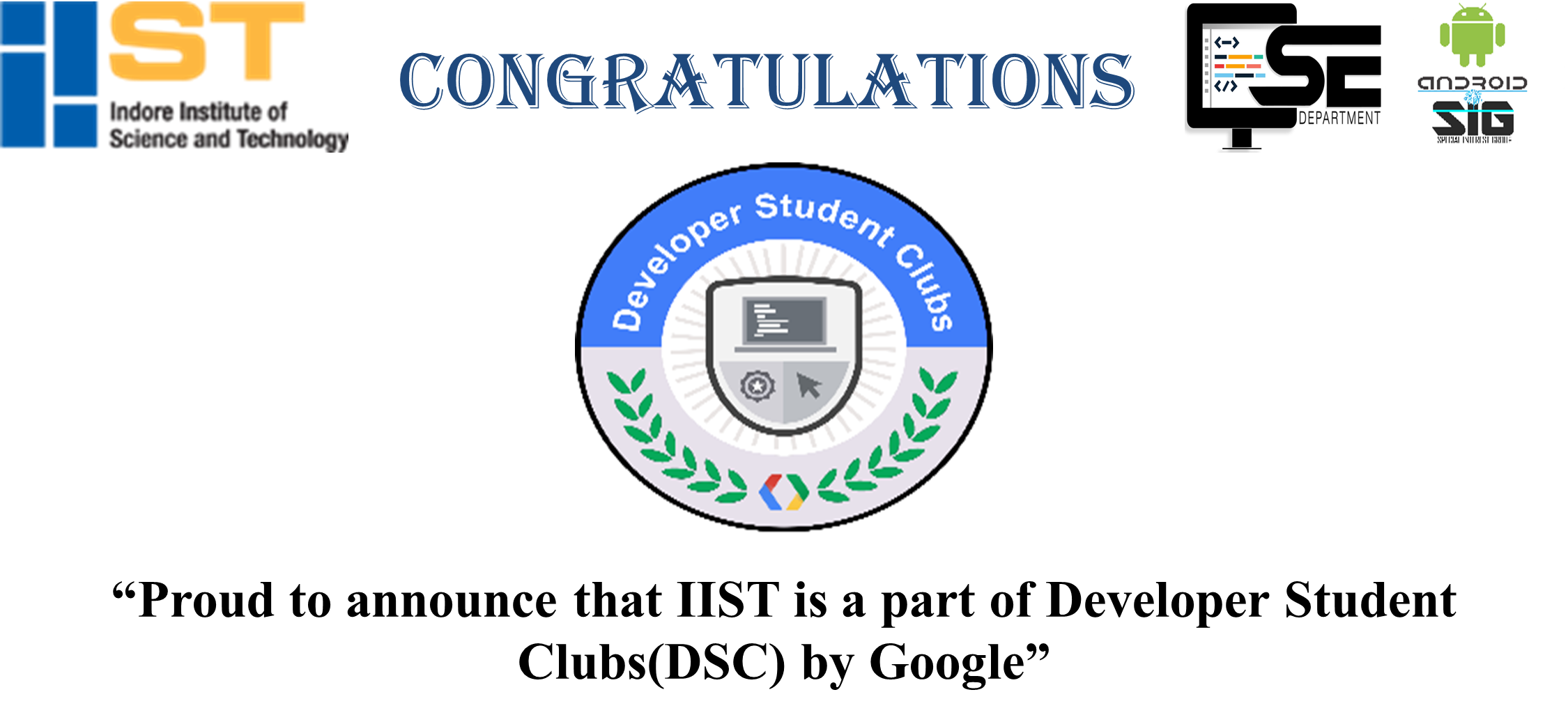
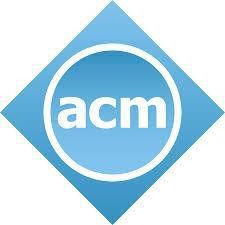 Our students have a variety of opportunities to gain hands-on experience and develop their leadership skills. They work on research with professors, study abroad around the world, pursue internships at leading companies, mentor their peers, and teach younger students about computer science. The student-run chapter of the national Association for Computing Machinery (ACM) provides social, academic, and career support.
Our students have a variety of opportunities to gain hands-on experience and develop their leadership skills. They work on research with professors, study abroad around the world, pursue internships at leading companies, mentor their peers, and teach younger students about computer science. The student-run chapter of the national Association for Computing Machinery (ACM) provides social, academic, and career support. 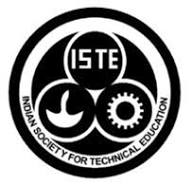
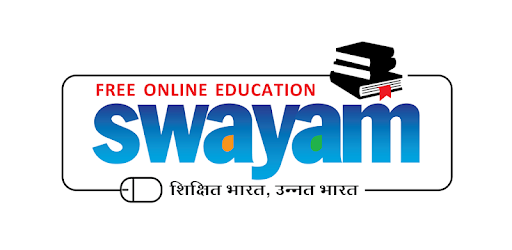 SWAYAM is an initiative by Ministry of Human Resource Development, Government of India. World’s largest SWAYAM MOOCs (Massive Open Online Courses), a new paradigm of education for anyone, anywhere, anytime, as per your convenience, aimed to provide digital education free of cost and to facilitate hosting of all the interactive courses prepared by the best more than 1000 specially chosen faculty and teachers in the country. SWAYAM MOOCs enhances active learning for improving lifelong learning skills by providing easy access to global resources.
SWAYAM is an initiative by Ministry of Human Resource Development, Government of India. World’s largest SWAYAM MOOCs (Massive Open Online Courses), a new paradigm of education for anyone, anywhere, anytime, as per your convenience, aimed to provide digital education free of cost and to facilitate hosting of all the interactive courses prepared by the best more than 1000 specially chosen faculty and teachers in the country. SWAYAM MOOCs enhances active learning for improving lifelong learning skills by providing easy access to global resources.Value Proposition Fit” & “Business Fit
AIML department organized Online Session on “Value Proposition Fit” & “Business Fit” for CSE and allied branch students. The Training has been taken by Dr. Satya Vardhan Tiwari. He motivated students to believe in their own potential to reach their destination. This lecture was very beneficial for students looking towards the industry point of view and to make decision about their career prospect in marketing and startups.
World Entrepreneurship Day
An Expert Lecture on Entrepreneurship was organized on World Entrepreneurship Day. Resource person for the same was Mr. Sameer Sharma. In his address; he delves into the key principles and practices essential for aspiring entrepreneurs. He emphasizes the importance of innovation, resilience, and adaptability in the dynamic landscape of business. Expert highlights the significance of identifying market opportunities, creating value for customers, and building a strong brand presence. Throughout the lecture, he shared insights from his own entrepreneurial journey, illustrating the challenges and triumphs he encountered along the way. Moreover, he emphasizes the significance of effective communication and networking skills in building meaningful relationships with stakeholders, investors, and customers.
Evolution of coding through Algorithm
Training on “ALGOLUTION: Evolution of coding through Algorithm” for 45 hours was conducted for second year students. The trainer for the same was Mr. Ankush Saklecha. He gave training on ‘Evolution of coding through Algorithm using C language’ from scratch and he explained various concepts related with Data Structure and Algorithm. The main purpose of this training was to enable students to get detailed insights of logical problems of DSA with hands-on.
Expert lecture on Cyber Security Awareness
An expert session on Cyber Security Awareness was organized for the students of second year. Speaker for the session was Mr. Rajesh Dandotiya, Additional Deputy Commissioner of Police Crime Branch, Indore. Session was taken in a way to help participants learn the basics of cyber security. During the session, Mr. Dhandotiya guided students through a different real case which was encountered in different parts of India. Main objective to organize this session was to make students aware about various types of cyber attacks and to guide them to be take preventive measures so that students do not get trapped in any type of cyber crime.
How to Crack Google
Expert lecture was organized for the students of IV year on “How to Crack Google”. Resource person for the same was Mr. Mahendra Chouhan (Software Engineer and Full Stack Developer, Google). The lecture began with an exploration of Google’s corporate culture and values. Emphasis was placed on the importance of aligning personal values with those of Google, highlighting innovation, inclusivity, and ethical business practices. Detailed discussions were held on the technical skills expected by Google, including proficiency in programming languages, data structures, algorithms, and system design. Additionally, soft skills such as teamwork, communication, and problem-solving were underscored as crucial. The lecture concluded with a discussion on career growth opportunities at Google, emphasizing continuous learning, adaptability to change, and taking initiative in one’s professional development. The expert lecture on “How to Crack Google” successfully equipped participants with the knowledge and strategies needed to navigate Google’s competitive hiring process. By focusing on both technical proficiency and personal development, attendees gained valuable insights into positioning themselves as strong candidates for roles at Google.
How to Crack Google for III Year Students
Expert lecture was organized for the students of III year on “How to Crack Google”. Resource person for the same was Mr. Mahendra Chouhan (Software Engineer and Full Stack Developer, Google). The session aimed to equip participants with essential strategies, skills, and insights necessary to pursue career opportunities at Google, one of the world’s leading technology companies. The primary objectives of the session were to provide an overview of Google’s company culture, values, and expectations from candidates; to offer insights into the recruitment process at Google, including resume preparation, interview techniques, and assessment criteria; to equip participants with technical and non-technical skills required to succeed in Google’s competitive hiring environment; to share tips and strategies from successful Google employees and industry experts. By the end of the session, participants gained a clear understanding of Google’s recruitment process and what it takes to stand out as a candidate.
FDP
FDP on research methodology was organized for faculties of IIST. Resource person for the same were Mr. Rakesh Soni, Dr. Shweta Agrwal, Dr. Richa Gupta, Dr. Puneet Duggal, Dr. Veena Dadhwani. The FDP aimed to equip participants with essential skills, knowledge, and techniques required to conduct high-quality research across various disciplines. The primary objectives of the FDP were to familiarize participants with the fundamentals of research methodology and its significance in academic and professional contexts; to provide an overview of different research paradigms, methods, and approaches; to enhance participant’s understanding of research design, sampling techniques, data collection methods, and analysis procedures; to discuss ethical considerations in research and principles of academic integrity and to empower participants to apply research methodology effectively in their respective fields of expertise.
Full Stack Development and Data Science
An expert lecture on Full Stack Development and Data Science was organized on the occasion of Engineers Day. The resource person for the same was Mr. Goutham Dalai. He discussed full stack development and various related concepts of data science from scratch. He also explained many important concepts of data mining with decision-making, data storage, and revenue generation and explained how it is helpful for organizations to maintain complex data processing systems.
Full Stack Web Development
The training on Full Stack was organized for the students of third year. Resource person for the same was Mr. Pankaj Wadhwani. He gave training on ‘HTML, JavaScript JSP, Servlets and JDBC for Beginners: Build a Database App’ from scratch and he explains so many important concepts of MVC model, DAO, Java Bean classes etc. The main purpose of this training was to enable students to get detailed insights of full stack web development with hands-on to some basic database application.
IIST visited IIT, Indore
Students from IIST visited IIT, Indore for an expert lecture on “From Technology to Startup” on September 22, 2023 (02:00-03:30 PM) organized by IIT Indore & IITI DRISHTI CPS Foundation under public lecture series. The key speaker was Mr. Rafiq Somani, Area Vice President, India, and South Pacific, ANSYS Inc, Pune and Member, BoD, & IITI DRISHTI CPS Foundation. The speaker emphasized the benefits of the start-up program and the potential for Indian engineering start-ups. Talking about disruptive innovation ideas, he explained how Ansys’ simulation software empowers start-ups to enhance product design and development for quicker time-to-market. All is done in the virtual fashion. Giving various examples of Indian startups like Praan-Air purification technology, IIT Kanpur’s Ventilator project etc, he shared the success stories and principals to initiate startups. He very interestingly discussed the reasons why start-ups fail and shared the principal of ASSURED innovation for assured success.
KAPILA
An awareness talk on KAPILA was organized for B.Tech CSE II year students. It has been delivered by Prof. Rakesh Verma. Expert has discussed about intellectual property in worldwide and India as well as presented statistics on patents and other IPs. Funding agencies and guidelines were also shared with the students. In addition to this, a funding scheme for patent offered by ministry of education in banner of KAPILA were also discussed and shared benefits of KAPILA for patents candidates.
Pre Kavach Hackathon
The Pre Kavach Hackathon of IIST was conducted on 1 April 2023. On 27 March a brief about the Pre Kavach Hackathon was given. Briefing was given in offline mode and Pre Kavach was online. There were idea presentations from 28 teams. The idea-cum-team selection was conducted by a panel of 3 Judges during the Internal Hackathon and the judgment was solely based on the Ideas [that were presented by prospective team in prescribed format. It was suggested that student teams should invest sufficient time in conceptualization of the solution to the stated problem statements and create the idea document for submission. Team registrations started from 24 March to 31 March 2023. Evaluation parameters were Relevance of Problem and Solution, Feasibility of Solution and Sustainability. Total 28 Teams participated.
Female students of IIST visited IIT Indore for the launch of a women-oriented pre-incubation Shakti 1.0.
Technical Poster Making Competition
Technical Poster Making Competition was organized for the students of second year on Engineer’s Day. Students presented their innovative skills by developing posters by using the software tools like MS-Word, MS-PowerPoint, Canva, etc.
Winners for the same are :
Training on Core Java Skill
45 Hours training was organized for the students of II year. Resource person for the same was Mr. Pankaj Wadhwani. He gave training on Java Technology from scratch and he explained so many important concepts in programming . The technology is very demanding and has a great potential to accelerate the career of students. The main purpose of this training was to enable students to get detailed insights of Java Programming with hands-on sessions. This Training was very beneficial for students looking towards the industry point of view and to make decisions about their career prospects in Java product development.
The department faculties adopt a dynamic and forward-thinking approach to teaching and learning that goes beyond traditional methods. Emphasizing student-centric and inquiry-based pedagogies, our initiatives are closely aligned with the institutional vision under the Samagra Samutkarsh Yojana (SSY) along with our Academic Standard Operating Procedures (SOPs). These efforts aim to promote innovation, entrepreneurship, and holistic development through real-world problem solving and technology-enabled teaching.
The department actively tries to integrate the above shown dimensional framework of the Samagra Samutkarsh Yojana (SSY) into its academic and co-curricular ecosystem. Key pillars such as Academic Excellence, Project Based Learning, Innovation & Research, Technology-Driven Governance, and Holistic Development are implemented through dynamic teaching methods, student-led initiatives, and industry interface.
Integrated live coding sessions in programming subjects such as Python, Java, and Data Structures using platforms like Visual Studio Code, and online IDEs. Students solved problems in real-time under faculty guidance.
Impact: Enhanced debugging skills, real-time problem-solving ability, increased engagement, and better preparedness for technical interviews.
Implemented group-based problem-solving sessions in subjects like Data Structures, Algorithms, and DBMS. Students were divided into small teams to solve coding or logic problems together
Impact: Improved teamwork, peer learning, logical reasoning, and communication. Helped students approach problems from multiple perspectives and boosted performance in group projects and interviews
Faculty shared video lectures and reading materials for subjects like Operating Systems, OOPs, and DBMS before the scheduled class. Classroom time was then used for interactive discussions, case studies, hands-on coding, and quizzes.
Impact: Enhanced debugging skills, real-time problem-solving ability, increased engagement, and better preparedness for technical interviews
PBL has been systematically implemented to foster teamwork, innovation, and practical problem-solving. Students are encouraged to work in groups to solve socially relevant or industry-defined challenges, guided by faculty mentors. This supports experiential learning, critical thinking, and the development of technical and soft skills.
Impact: Enhances technical depth, innovation, teamwork, and real-world application of knowledge.
Teaching method where learners actively engage in practical activities, not just theory. Students learn more effectively by doing.
Hands-on SIG A Hands-On SIG is a focused learning or working group where participants actively engage in practical work—like coding, building hardware, experimenting, or prototyping—around a shared interest or topic
Impact: The outcome for students using hands -on teaching and online coding includes improved coding and problem-solving skills, better understanding of theoretical concepts through practice, and enhanced readiness for technical interviews and campus placements.
Faculty organized and mentored students for internal and external coding contests (e.g., Hacker rank, Skill Rack, CodeChef, LeetCode) and hackathons. Events included 24-hour coding marathons, mini-hackathons, and thematic innovation challenges
Impact: Improved coding efficiency, creativity, time-bound problem solving, teamwork, and exposure to real-world problem-solving environments. Increased placement success and innovation mindset.
Organized expert sessions by industry professionals, startup founders, and researchers on emerging topics, Cybersecurity, Cloud, Startups etc. These talks were aligned with the course content and upcoming industry trends.
Impact: Bridged the gap between theory and real-world applications. Enhanced student awareness of industry expectations, career paths, and latest technologies. Inspired innovation and entrepreneurship.
2. Experiential Learning :
Redesigned lab sessions in courses like DBMS, OS, CN, and AI to include real-world case studies and scenarios. Used advanced tools like MySQL Workbench, Cisco Packet Tracer, Jupyter Notebook, to simulate industrial environments.
DBMS – Normalization with real e-commerce data
OS – Process scheduling simulations
CN – Packet tracing and protocol analysis
Impact: Strengthened hands-on skills, improved application-based understanding, increased confidence in tool usage, and improved performance in internships and job assessments.
Internship readiness sessions on resume building, GitHub profiles, and interview skills.
Internships conducted during summer/winter breaks and final year with faculty as academic mentor.
Impact: Provided industry exposure, practical knowledge, and improved employability. Helped students build professional networks and better understand industry requirements and expectations.
Under the initiative, the department organizes regular industrial visits (e.g., to IIT Indore) and tours to expose students to real-time technologies and work environments.
Impact: Builds awareness of industry trends, tools, and applications; enhances career readiness.
CSE Department conducts Skill Improvement Groups (SIGs) led by experienced faculty and industry experts to bridge the gap between academic learning and industry needs. Through specialized training and certification programs, students gain practical exposure to emerging technologies and current industry trends in areas like Blockchain, Data Analytics, Cloud Computing, AI, IoT, and more. These programs equip students with the skills and certifications needed to become industry-ready professionals.
Impact: Each SIG is aimed at enhancing the employability quotient of students while strengthening their core technical and analytical skills
A Hands-On SIG is a focused learning or working group where participants actively engage in practical work—like coding, building hardware, experimenting, or prototyping—around a shared interest or topic
Impact: Hands On Training helps students to implement the knowledge with trainer
- Value-added and certificate courses
Beyond curriculum, encouraging for certification for courses like AWS, CISCO etc.
Impact: Enhanced technical competency beyond the curriculum. Boosted skill development, employability, and readiness for certifications and placements.
Faculty encouraged students to enroll in MOOCs offered by NPTEL, Coursera, edX, and Udemy. Selected MOOCs were aligned with curriculum and industry trends. Credits or marks were awarded for successful completion. Faculty also completed FDPs to stay updated with emerging technologies.
Impact: Improved self-learning, exposure to global teaching resources, certification in advanced topics, and enhanced placement opportunities.
Department holds a valid license for Virtual Labs, enabling students and faculty to access a comprehensive suite of remote laboratory experiment
Impact: Enabled students to perform experiments remotely, visualize abstract concepts, and gain hands-on experience regardless of location or device limitations. Improved practical understanding and continuity of lab learning during disruptions
3. Participative Learning
Faculty introduced student-led technical presentations as part of internal assessments and course delivery. Students were assigned recent topics or research papers in emerging areas (e.g., Blockchain, AI, DevOps) and presented their findings to the class. Peer and faculty feedback was provided.
Impact: Improved research, communication, and public speaking skills. Fostered critical thinking, confidence, and familiarity with emerging technologies. Encouraged active participation and peer learning.
Faculty organized regular intra-department and inter-college coding competitions such as “CodeQuest”, “Code Sprint”, and weekly programming challenges using platforms like HackerRank, CodeChef, and LeetCode. Students also received training and mentoring before contests.
Faculty conducted structured mock technical and HR interviews for final- and pre-final-year students. Sessions simulated campus recruitment processes, including aptitude tests, technical rounds, and HR discussions. Feedback was given individually to improve performance.
Faculty organized hands-on technical workshops on trending technologies. These workshops included expert sessions, real-time demonstrations, and guided project building.
Innovative activities ensure continuous academic evaluation through, innovative assignments like role plays and case studies, and interactive activities such as group discussions and demonstrations. In labs, regular quizzes, viva sessions, and presentations reinforce practical skills. These methods promote active learning and simulate external exams, helping students build confidence and real-world readiness.
Roleplay activity in class
Roleplay activity in class
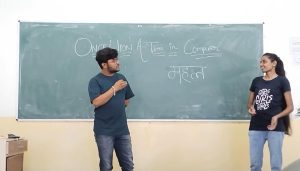
Crossword puzzle assignment
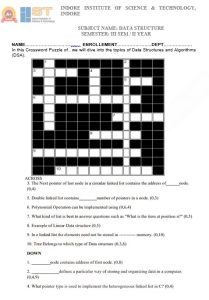
Word finder assignment
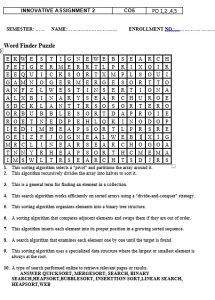
Group Discussion
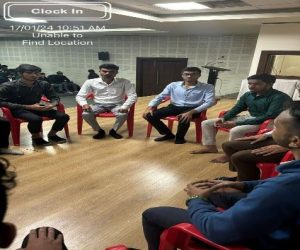
An internal hackathon for students is a focused, time-limited event held within a college where students team up to brainstorm, design, and build projects—often tech-related like apps, websites, or hardware prototypes. It encourages creativity, teamwork, and practical problem solving 24 Hours Internal Hackathon which is exclusively organised for IIST students.
In 2023 there were total 52 teams and 180 participants
In 2024 there were 143 teams and 524 Participants
In year 2025 there were 226 teams and 1049 Participants.
From the last three years, the triumph at Smart India Hackathon 2022, 2023, 2024 Victory at “S&T” Hackathon held at IIT
Guwahati commitment to holistic development of students through Samagra Samutkarsha Yojana
nurturing a culture of innovation, excellence, and societal contribution.
The Smart India Hackathon (SIH) is a premier annual event organized by the Ministry of Education and AICTE in collaboration with government departments, PSUs, and industries.
In 2022, six teams from our college were selected to participate in the Smart India Hackathon, and two of them emerged as winners.
In 2023, eight teams from our college qualified for the Smart India Hackathon, with three of them emerging as winners.
In 2024, two teams from our college were selected to participate in the Smart India Hackathon.
In 2024, one team from our college were selected to participate in the Viksit Bharat Hackathon held at IIT Guwahati.
Research helps students apply theory to real-world problems, encouraging innovation and independent learning. To support this, we organize internal student conferences and include research papers in minor and major project submissions.
In October 2024, our department successfully conducted an Internal Student Conference, providing a platform for students to showcase their research and innovative ideas. A total of 17 research papers were presented by students across various emerging topics in their respective domains. This initiative encouraged scholarly engagement, enhanced research skills, and promoted a culture of academic inquiry among students.
Faculty organized “Ideathon” events where students proposed tech-based solutions to real-world problems. Themes included smart cities, education, healthcare, and environment. Students worked in teams and pitched their innovative ideas in front of expert panels
The active involvement of NPTEL Course Mentors has a direct positive impact on students’ learning outcomes. Faculty members who act as mentors can join the same NPTEL courses they are guiding students through. By attending classes, submitting assignments, and writing the final exam, mentors can earn an official NPTEL certificate.when mentors learn and grow, students benefit directly through better support, more confidence, and higher chances of success in NPTEL courses.
Our institution is committed to the holistic development and academic success of all students through a structured and inclusive Student Support and Mentoring System. This system addresses the diverse learning needs of students by offering targeted interventions, personal guidance, and career preparation support.
One-to-One Faculty Mentoring for academic and personal guidance.
Remedial Classes for weak students to improve subject understanding.
GATE/Competitive Exam Coaching for interested and high-performing students.
WhatsApp-Based Communication with students and parents for regular updates and mentoring.
Outcome: The Student Support and Mentoring System fosters academic improvement, personal growth, and career readiness through personalized guidance and inclusive interventions.
6. Use of ICT Tools
Faculty utilize projectors and smart boards in classrooms and labs to enable innovative teaching methods. Our department offers a variety of dedicated labs where students gain hands-on experience in various subjects like Web Engineering, DBMS, Linux/Unix, Java, Android, Python, .NET, and more. Faculty enhance teaching by integrating technologies that support engaging, student-centered learning.
Smart Boards: Enable interactive lectures with real-time annotations and multimedia content.
Learning Management Systems (LMS): Manage courses, assignments, and communication in a structured online environment.
Projectors and Visualizers: Display visual content clearly to enhance understanding and engagement
Online Assessment Tools: Facilitate quick quizzes and real-time feedback to monitor student learning.
Cloud Storage and Collaboration Tools: Allow easy sharing and collaborative editing of educational materials.
Video Conferencing Tools: Support live virtual classes and remote collaboration beyond the classroom.
Virtual Labs: Our department holds a valid license for Virtual Labs, enabling students and faculty to access a comprehensive suite of remote laboratory experiments across multiple discipline
MOUs Our institution has signed multiple MoUs with leading academic platforms, industries, and innovation hubs to enhance student learning and industry readiness. Key collaborations include Virtual Labs (IIT Delhi), AWS, Cisco, NPTEL, Coursera. These provide access to hands-on training, certifications, internships, and global learning resources.
We also collaborate with platforms like SkillRack, CodeChef, and Geeks for Geeks to build technical and coding skills.These collaborations ensure our students graduate as industry-ready, technically skilled, and well-rounded professionals.
As part of our “Recognition to Merit” initiative, we implemented a merit-based fee structure to support and encourage academic excellence. Meritorious students are acknowledged through awards, scholarships, and certificates. Additionally, students excelling in research or demonstrating exceptional achievements in various fields are honored with prizes and special recognition. This approach fosters a culture of motivation and excellence across the department.
Institute strongly believes in nurturing the inner self through our “Know Thyself & Thyself Willing to Evolve” initiative. To support this, we offer meditation, mindfulness, and yoga sessions that help students build self-awareness, reduce stress, and improve mental clarity. Our management prioritizes students’ mental and physical well-being, recognizing its importance for academic success and overall happiness. These practices create a supportive environment where students can manage challenges, stay focused, and develop resilience and emotional balance.
To foster a well-rounded educational environment that goes beyond academic instruction, our department has integrated several innovative strategies into the teaching and learning process. These include student participation in various clubs as per their interests for which we have a wide range of student-driven clubs that foster innovation, creativity, leadership, and holistic development. These include the Lexicon Club (Communication), Cultural Club, Sports Club, Photography Club, Film Making Club, Art Club, Trekker Club, Green Wave Club, Samagra Club, Poetry Club, Charitable Club, AI Club, IPR Cell, and EDC Cell. Together, these clubs actively engage students through expert talks, webinars, workshops, and hands-on activities, encouraging personal growth and collaborative learning beyond the classroom.
Holistic Development
We focus on the all-round growth of students, blending academics with yoga, meditation, soft skills, and personal development to enhance focus, manage stress, and support long-term success.
Connecting with Nature
Nature-based activities like field visits and eco-clubs foster curiosity, creativity, and reduce anxiety, boosting academic engagement and performance.
Social Responsibility
Through community service, NSS, and environmental programs, students develop empathy, teamwork, and ethical decision-making, gaining real-world skills and broadened perspectives.
Emphasis on Communication
Personality Development Programs from the first year build communication skills via discussions, presentations, and mock interviews, preparing students for professional environments.
Discipline as Foundation
Structured schedules and a strong code of conduct promote integrity, time management, and consistency, leading to better academic performance and responsibility.
Teaching – Learning Processes
Describe Processes followed to improve quality of Teaching & Learning
The Teaching and Learning process is given foremost importance in the department.
To enhance the quality of teaching and learning, a structured academic process is followed. The following systematic steps are undertaken to ensure effective planning, delivery, and evaluation, in alignment with the curriculum prescribed by Rajiv Gandhi Proudyogiki Vishwavidyalaya (RGPV) and the reforms recommended by AICTE.
Step I : University Academic Calendar and Departmental Planning
At the beginning of each academic session, the department receives the official curriculum structure and academic calendar from RGPV, Bhopal. This calendar specifies the semester duration, examination schedules, internal assessment timelines, holidays, and other key dates. It serves as the basis for academic planning at both the institute and department levels. The department carefully reviews the curriculum and identifies areas that may require additional inputs or enrichment to ensure better alignment with the intended Program Outcomes (POs) and Program Specific Outcomes (PSOs).
Step II : Formulation of Institute Academic Calendar and Committee Structuring
Based on the RGPV academic calendar, the institute prepares its own detailed academic calendar, which includes schedules for internal assessments, workshops, and various co-curricular activities. To effectively implement the academic plan, statutory and functional committees—such as the Internal Quality Assurance Cell (IQAC), Anti-Ragging Cell, Industry-Academia Cell, and Grievance Redressal Cell—are constituted or restructured at the beginning of each semester. These committees play a vital role in upholding academic discipline, monitoring quality standards, and fostering continuous improvement within the department.
Step III: Departmental Planning – Activity Calendar and Faculty Preferences
The CSE Department prepares a comprehensive departmental academic activity calendar that aligns with the institute-level academic calendar. The Department’s Program Assessment Committee (PAC), in coordination with the Head of the Department (HoD), works collaboratively to ensure the smooth execution of departmental activities. This calendar includes department-specific initiatives such as expert lectures, technical seminars, industrial visits, workshops, and training programs aimed at enriching students’ academic and professional development.
Faculty members are invited to submit their subject preferences based on their areas of expertise and teaching experience, ensuring optimal course allocation and quality delivery. Subject allotment is done well in advance to enable faculty members to prepare detailed lesson plans and lecture materials. Faculty prepare lesson plans that include clearly defined course outcomes before the semester begins.
In addition, the departmental calendar clearly outlines planned activities aimed at bridging curriculum gaps and strengthening the attainment of Program Outcomes (POs) and Program Specific Outcomes (PSOs) through well-structured enrichment programs and value-added learning modules.
Step IV: Elective Choice, Subject Allocation, Load Chart, and Timetable Preparation
Elective choices are collected from students in advance to facilitate effective subject allocation. After gathering faculty subject preferences, course assignments are made in accordance with individual domain specializations and expertise. Subsequently, teaching load charts are prepared, and detailed timetables for both theory and laboratory sessions are developed.
Class coordinators and student syndicates are designated for each class to ensure smooth academic and administrative coordination throughout the semester.
In parallel, roles and responsibilities of laboratory in-charges, lab coordinators, and supporting technical staff are clearly defined and communicated. Prior to the commencement of each semester, laboratory readiness is ensured through inspection of equipment, installation of required software, and preparation or revision of lab manuals and records.
Step V: Communication of Evaluation Scheme
The evaluation scheme, which consists of 30% Continuous Internal Evaluation (CIE) and 70% Semester End Examination (SEE), is clearly communicated to students through official notices and announcements. Assessment rubrics and criteria are discussed with students to ensure transparency and clarity in the evaluation process.
At the beginning of each course, faculty members explain the detailed assessment methodology, marking scheme, and expected course outcomes. This practice promotes a result-oriented learning approach and helps students align their efforts with the desired academic goals.
Step VI: Conduct of Teaching–Learning and Monitoring
The Department of Computer Science and Engineering (CSE) at IIST Indore ensures that classroom instruction and laboratory sessions are conducted meticulously, following the prescribed academic timetable and well-prepared lesson plans developed at the beginning of each semester. Faculty members are required to maintain detailed teaching diaries and comprehensive course files for each of their allotted subjects. These records document daily syllabus coverage, pedagogical methods used, and assessment activities conducted. They serve both as evidence of instructional delivery and as a basis for internal academic review.
To uphold academic quality and consistency, the Departments Program Assessment Committee, in coordination with HOD, monitors teaching activities through random classroom visits, direct interactions with students, and systematic checks of teaching records. Faculty members receive constructive feedback and mentoring based on these observations, with the aim of enhancing content delivery and student engagement.
In addition, each faculty member submits a formal course progress report in a standardized format monthly, ensuring transparency and timely monitoring of syllabus completion.
To encourage discipline and ensure consistent student participation, attendance records are consolidated every fifteen days and shared with parents of students who demonstrate irregular attendance. These communications are issued as formal letters, advising appropriate corrective measures and emphasizing academic accountability. This proactive approach helps reduce absenteeism and fosters a sense of responsibility among students.
The department places a strong emphasis on the integration of Information and Communication Technology (ICT) in teaching to enrich the learning environment and enhance student outcomes. At IIST, ICT is not viewed merely as an aid but as an essential component of modern pedagogy. Faculty members apply Technological Pedagogical Content Knowledge to engage students effectively and encourage deep, domain-specific learning.
All classrooms are equipped with smart boards, while seminar halls and auditoriums feature LCD projectors, projection screens, green boards, and sound systems. These digital learning spaces support blended teaching methods that go beyond traditional chalk-and-talk approaches. Faculty members are encouraged to use PowerPoint presentations, digital slates, instructional videos, document cameras, and demonstrations of real-world applications to make content delivery more engaging and relevant to industry practices.
Step VII: Continuous Internal Evaluation (CIE)
Continuous Internal Evaluation (CIE) is conducted through a combination of two Mid-Semester Tests (MSTs), quizzes, assignments, viva voce, and regular classroom interactions. Each assessment component is carefully mapped to specific Course Outcomes (COs), and student performance is analyzed to measure the level of attainment for each outcome.
For laboratory courses, CIE includes continuous assessment through day-to-day lab work, periodic internal examinations, and evaluation of mini-projects or Project-Based Learning (PBL) activities. Standardized rubrics are employed for all evaluations to maintain objectivity, transparency, and consistency across different sections and faculty members.
Step VIII: Pedagogical Innovations and Student-Centric Strategies
The Department of Computer Science and Engineering (CSE) at IIST Indore actively adopts innovative pedagogical practices to maximize student engagement and enhance learning outcomes. Faculty members employ diverse instructional strategies including real-time coding demonstrations, algorithm walkthroughs, collaborative problem-solving, flipped classroom models, and Project-Based Learning (PBL). Students gain hands-on exposure to industry-relevant tools and modern software environments such as Python, Java, Jupyter Notebook, and Google Colab. Technical competitions, coding contests, hackathons, quizzes, and expert talks are regularly organized to promote an active and experiential learning culture.
Experiential learning is a core element of the academic process. Students participate in practical lab sessions, minor and major projects, internships, and industrial visits to acquire real-world skills. The department has implemented Skill Improvement Groups (SIGs) with the objective of bridging the gap between academic learning and industry requirements. SIGs are designed to nurture student interest in specific technical domains through structured, skill-focused training sessions beyond the regular curriculum.
The department regularly offers value-added and certificate courses covering emerging technologies such as AWS Cloud Computing, CISCO, SQL, Competitive coding to align students’ skill sets with current industry requirements. Additionally, virtual labs and online simulation tools enable students to practice coding and run experiments beyond classroom hours, supporting flexible and continuous learning in hybrid and off-campus modes. Students are strongly encouraged to enroll in MOOCs through platforms like NPTEL, Coursera, and edX to supplement classroom learning.
Participative learning is fostered through various classroom activities such as group discussions, technical presentations, peer programming, live demos, and mock interviews. Student clubs and technical societies within the department provide platforms for peer-to-peer learning, mentoring, and holistic personality development. The department frequently organizes expert lectures, technical seminars, webinars, and skill development workshops to connect students with leading researchers, industry professionals, and domain experts, thus broadening their academic and professional perspectives.
To systematically strengthen problem-solving and computational thinking, the department conducts coding competitions, quizzes, hackathons, and ideathons. Students are motivated to publish technical papers and participate in national and inter-collegiate technical events to hone their research and presentation skills. These activities cultivate critical thinking, innovation, and structured problem-solving abilities—key attributes for a successful career in computing.
Workshops and training sessions covering programming languages, web development, AI/ML frameworks, IoT, and other cutting-edge technologies are routinely organized using ICT tools. These sessions are delivered by experienced faculty, industry experts, and distinguished alumni to deepen technical expertise and enhance employability.
The pedagogical framework of the CSE Department at IIST Indore is designed to be student-centric, ICT-enabled, and innovation-oriented. By systematically integrating experiential, participative, and problem-based learning approaches with advanced digital resources, the department ensures that students graduate as academically proficient, industry-ready, and lifelong learners prepared to excel in the dynamic field of computer science and engineering.
Step IX: Support for Weak and Advanced Learners
The CSE Department adopts a structured approach to cater to the diverse learning needs of students, ensuring that every learner builds a strong foundational skill set while excelling academically and personally. The department follows well-established teaching and learning practices, reinforced by systematic assessments such as qualifying examinations, mid-semester tests, assignments, and continuous evaluation.
Faculty members provide consistent support through personalized counseling, remedial classes, additional study materials, and focused group discussions. Slow learners are motivated to participate actively in internal assessments and departmental academic activities to build confidence and improve performance.
For advanced learners, the department goes beyond the prescribed curriculum by offering seminar sessions, self-directed learning opportunities, and exposure to innovative projects. These students are encouraged to engage in experiential learning through industrial visits, research activities, and national or international competitions to further sharpen their skills and boost their confidence.
Additionally, both slow and advanced learners are encouraged to earn extra credits by enrolling in MOOCs offered through NPTEL, covering foundational as well as advanced topics in line with current industry trends.
Step X: Feedback Collection and Action Taken
Structured feedback is an integral part of the department’s quality assurance process. Feedback is collected at multiple stages during the semester from students, alumni, faculty, and parents through online surveys, direct interactions, lab performance reviews, and exit feedback forms.
This feedback is systematically analyzed and reviewed in Program Assessment Committee (PAC) meetings. Based on the analysis, corrective and preventive measures are identified and implemented promptly to address any gaps. Faculty members receive individualized performance feedback, which contributes to their continuous improvement and is factored into their annual performance appraisal.
Step XI: Outcome Mapping and Attainment Analysis
Each course in the CSE Department is meticulously mapped to relevant Program Outcomes (POs) and Program Specific Outcomes (PSOs). Attainment levels are calculated using both direct methods (assessment scores, exam results) and indirect methods (student surveys, course feedback).
Clear benchmarks—such as Level 3 attainment for students scoring above 70%—are set to evaluate the effectiveness of course delivery and student understanding. All data related to outcome mapping and attainment is consolidated in individual course files and reviewed during academic audits to ensure continuous quality improvement.
Implementation and Documentation
All teaching–learning activities and quality enhancement initiatives within the CSE Department are supported by thorough and systematic documentation. Key documents include Academic calendars, Departmental activity calendars, Course files and lesson plans, CO-PO mapping sheets, Laboratory manuals and workbooks, Teaching diaries and lecture records, Assessment scores and attainment reports, Student mentoring records, Feedback collection summaries and action-taken reports. This robust documentation framework demonstrates compliance with Outcome-Based Education (OBE) practices and ensures transparency and accountability. It also serves as a valuable reference for continuous refinement of teaching methods and the overall improvement of student learning outcomes.
The institute follows a well-defined academic calendar that is closely aligned with the academic calendar issued by RGPV. This alignment ensures smooth academic operations and timely completion of all teaching and evaluation processes. The semester begins in accordance with RGPV’s schedule, and the internal assessment structure includes two Mid-Semester Tests (MST-1 and MST-2), which are conducted between the semesters. These tests help in evaluating the continuous academic progress of students and are planned to ensure adequate syllabus coverage.
Major academic activities such as expert lectures, workshops, SIG sessions, and technical events are integrated into the calendar without affecting the teaching schedule. The last working day of the semester is planned as per RGPV norms to ensure the minimum required instructional days are fulfilled. Following this, end-semester practical exams are conducted in coordination with external examiners, as per university guidelines. The academic calendar also provides adequate preparation time for end-semester theory exams conducted by RGPV.
Overall, adherence to a structured and RGPV-aligned academic calendar ensures timely curriculum delivery, systematic evaluation, and holistic academic development, contributing to the smooth functioning of the academic system.
The department continuously adopts and integrates innovative pedagogical methods. These approaches not only help in bridging the gap between theoretical concepts and practical applications but also promote critical thinking, problem-solving skills, and student engagement.
The faculties adopted an active learning methodology by involving students in the learning process more directly using activities like:
Teamwork enhances students’ cooperation with peer students. This prepares them to work in companies as a team a member.
The following criteria are used to classify students:
To assist slow learners in catching up with the curriculum and boosting their confidence, the following strategies are implemented:
Bright students are motivated to pursue excellence beyond the classroom:
The mentorship system has led to notable improvements across various domains:
To enhance the effectiveness of teaching and improve student learning outcomes, the following innovative methodologies have been adopted:
Student Feedback Collection and Analysis
Student feedback is systematically collected. The feedback is focused on various aspects of teaching, including effectiveness, clarity of subject delivery, interaction with students, and overall classroom engagement. This process ensures transparency and provide students with a platform to express their academic experiences.
Role of the HoD/PAC in Analysis
The Head of the Department (HoD) thoroughly analyzes the collected feedback for each faculty member. By identifying patterns and specific areas of concern, HoD assesses both the strengths and weaknesses in teaching practices. This analysis is crucial in maintaining and improving academic quality within the department.
Faculty Communication and Improvement Measures
Negative feedback is communicated confidentially to the respective faculty members. Constructive discussions are held to help them understand the concerns raised by students. Faculty are guided and encouraged to make specific improvements in their teaching methodology, such as simplifying complex topics, increasing interaction during lectures, and using more engaging teaching tools.
Implementation and Outcome
As part of the improvement plan, some faculty members conducted remedial sessions and adopted audiovisual aids to enhance clarity. Others worked on refining their communication and subject delivery skills. These efforts led to positive changes in classroom dynamics and teaching effectiveness.
Impact of the Feedback System
Follow-up feedback from students indicated noticeable improvements in teaching quality. The structured feedback and review mechanism not only improves academic delivery but also strengthened trust and communication between students and faculty. This ongoing cycle of feedback and improvement contributes significantly to maintaining high educational standards.